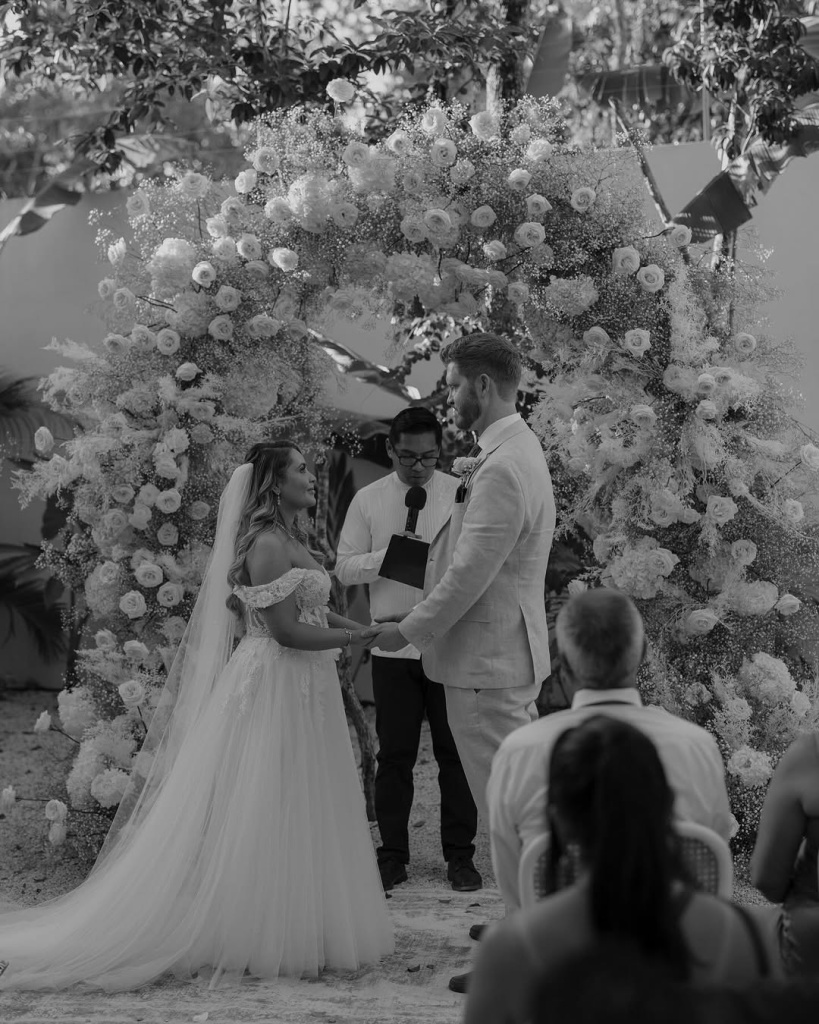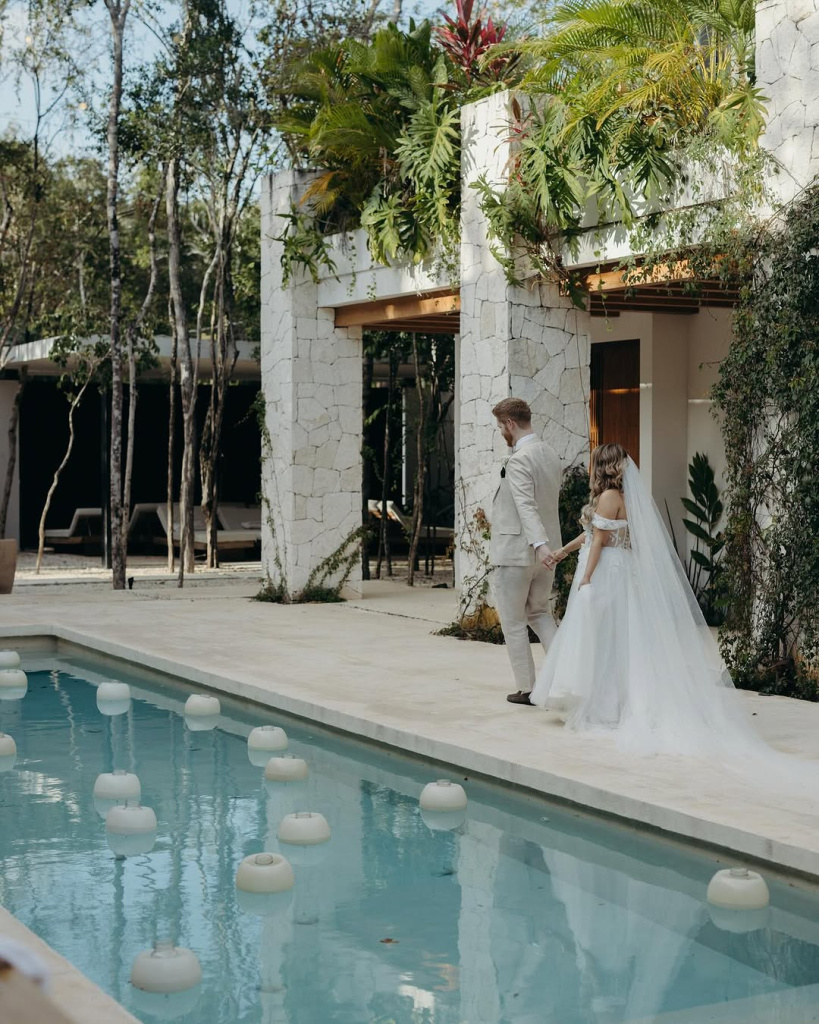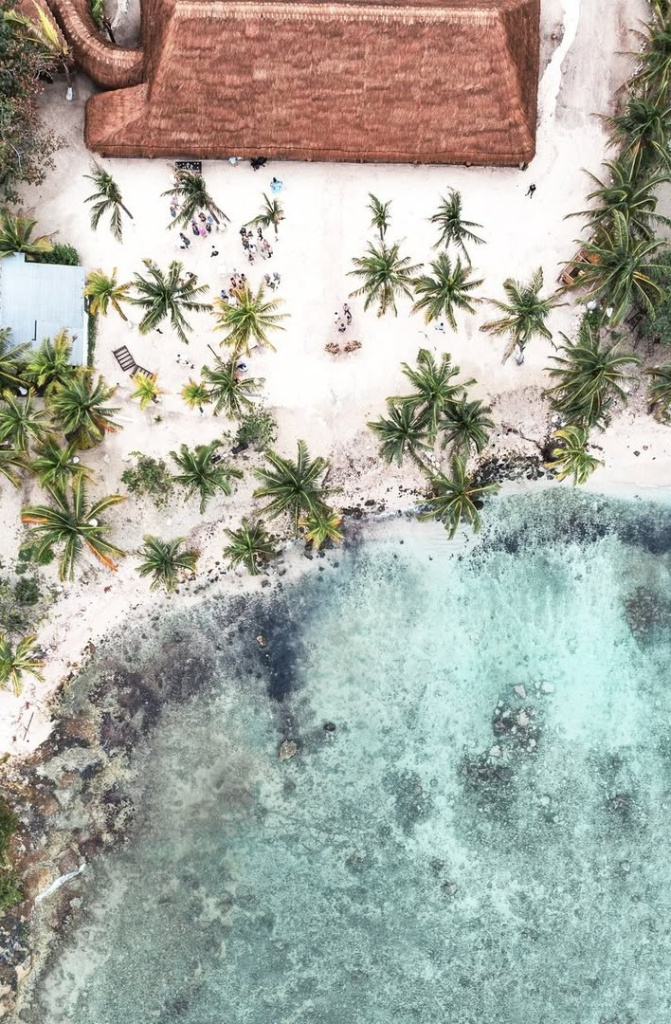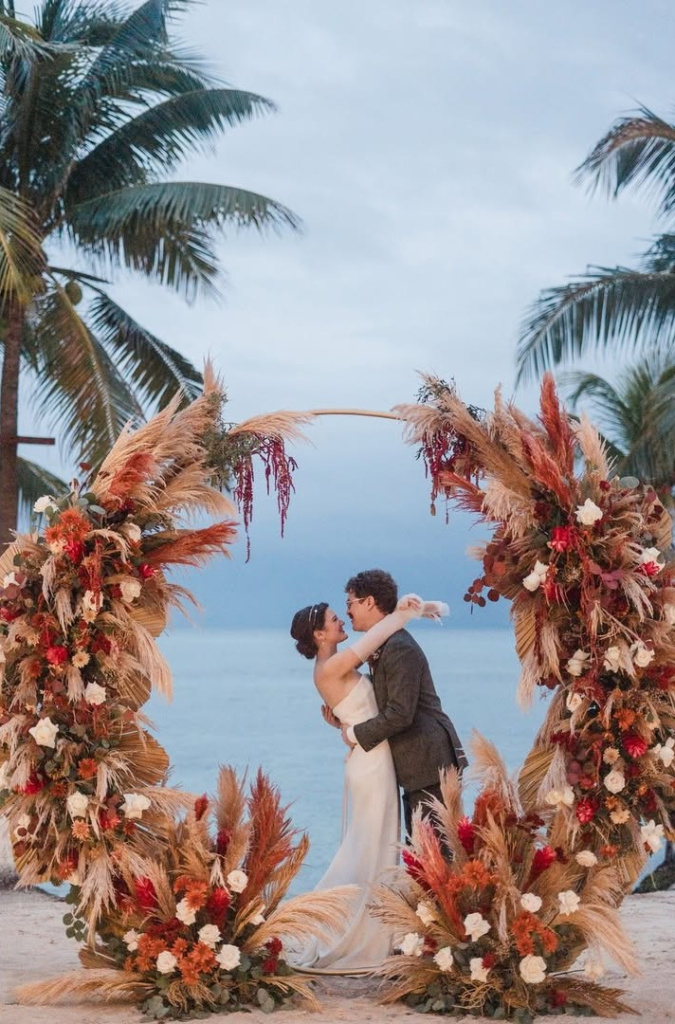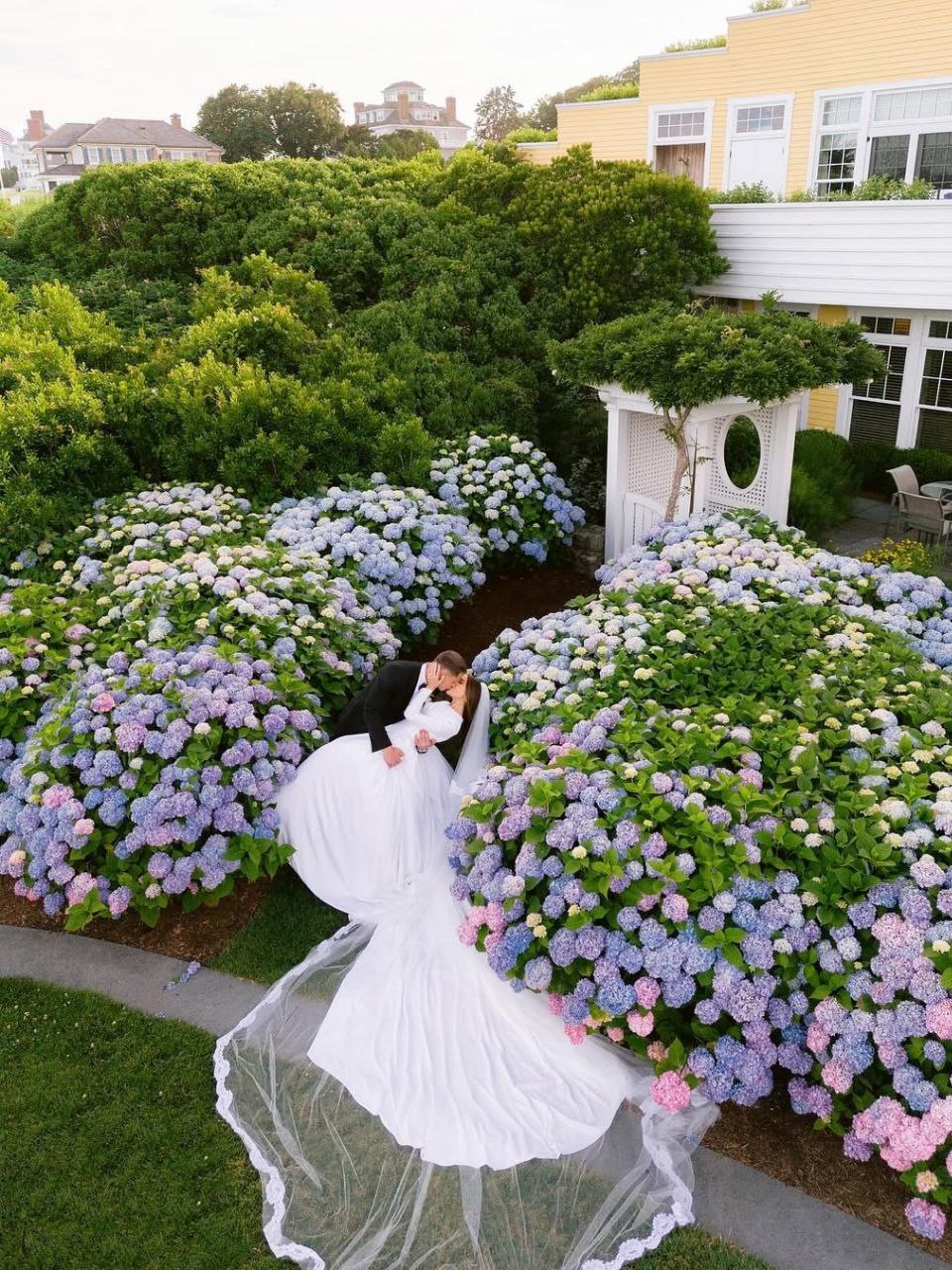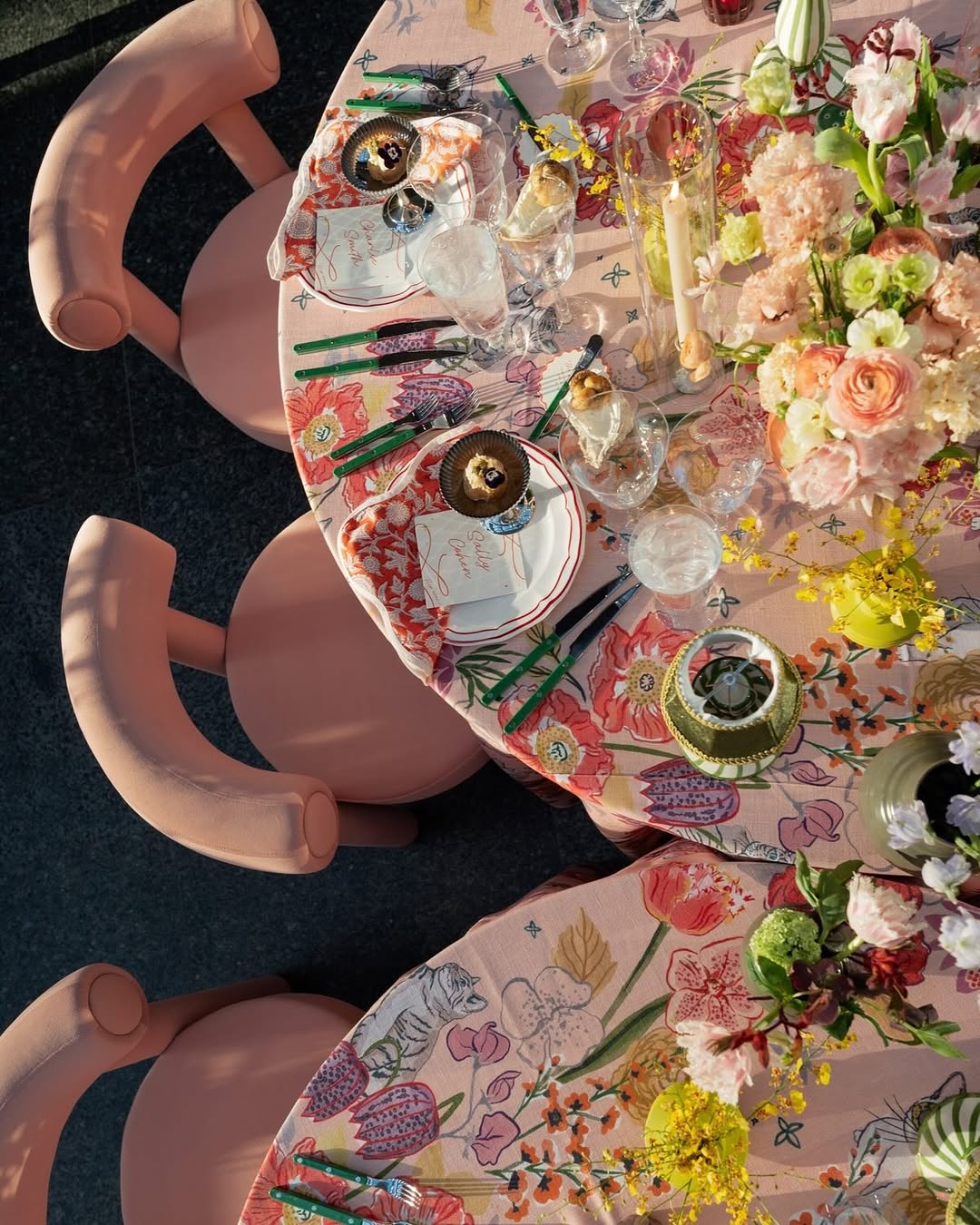Essential Mexico Destination Wedding Planning Guide
- Author: Natali Grace Levine
- Reading time: 34 min 34 sec
- Publication date: 09/02/2025
- Updated: 02/19/2026
- Why Choose Mexico for Your Destination Wedding?
- Best Locations for Weddings in Mexico
- Legal Requirements for Getting Married in Mexico
- Budgeting for a Destination Wedding in Mexico
- Mexican Destination Wedding Planning Guide: Choosing the Right Planner
- The Ultimate Guide to Destination Weddings in Mexico: Selecting the Perfect Venue
- Photography and Videography Tips for Your Mexican Wedding
- Making the Most of Scenic Backdrops When Planning Your Mexican Dream Wedding
- Essentials for Planning a Destination Wedding: Finding the Perfect Florist
- Mexican Destination Wedding Planning Tips: Music and Entertainment Options
- Destination Wedding Essentials: Crafting an Authentic Mexican Wedding Menu
- Ensuring Seamless Communication with Vendors
- Personalized Wedding Décor and Themes
- Sustainable and Eco-Friendly Wedding Ideas
- Exploring Mexican Wedding Dress Trends
- Incorporating Mexican Traditions and Customs
- The Essential Guide to Planning Your Dream Destination Wedding in Mexico: Cultural Etiquette and Expectations
- Steps to Planning a Destination Wedding in Mexico: Understanding the Seasonal Weather
- Accommodation Options for You and Your Guests
- Transportation Logistics for Your Wedding Party
- Creating Memorable Wedding Favors
- Planning Pre-Wedding and Post-Wedding Activities
- How to Plan a Dreamy Destination Wedding: Navigating Language Barriers
- Health and Safety Considerations
- Packing Essentials for a Mexican Wedding
- Making the Most of Mexican Honeymoon Destinations
Dreaming of a wedding with stunning ocean views, vibrant cultural flair, and unforgettable memories? Mexico might just be your perfect destination. A treasure trove of scenic locations, rich traditions, and warm hospitality, Mexico offers a colorful palette for your big day. Whether you’re drawn by the promise of sun-drenched beaches, historic colonial cities, or lush landscapes, planning your dream wedding in Mexico can be as exciting as it is daunting. But fret not! This ultimate guide to planning your dream destination wedding in Mexico will walk you through every step, ensuring that your special day is nothing short of magical.

Why Choose Mexico for Your Destination Wedding?
Mexico stands out as a wedding destination for several reasons: its beautiful landscapes, versatile wedding venues, accessible prices, and its proximity to the United States and Canada. Whether it's the Riviera Maya’s Caribbean beaches, the ancient charm of Oaxaca, or the bustling excitement of Mexico City, each location offers a unique backdrop for your nuptials. Moreover, the vibrant culture, delicious cuisine, and the warmth of the Mexican people add an extra layer of charm to your wedding celebrations. So, let’s dive straight into the essentials of planning your dream Mexican wedding!
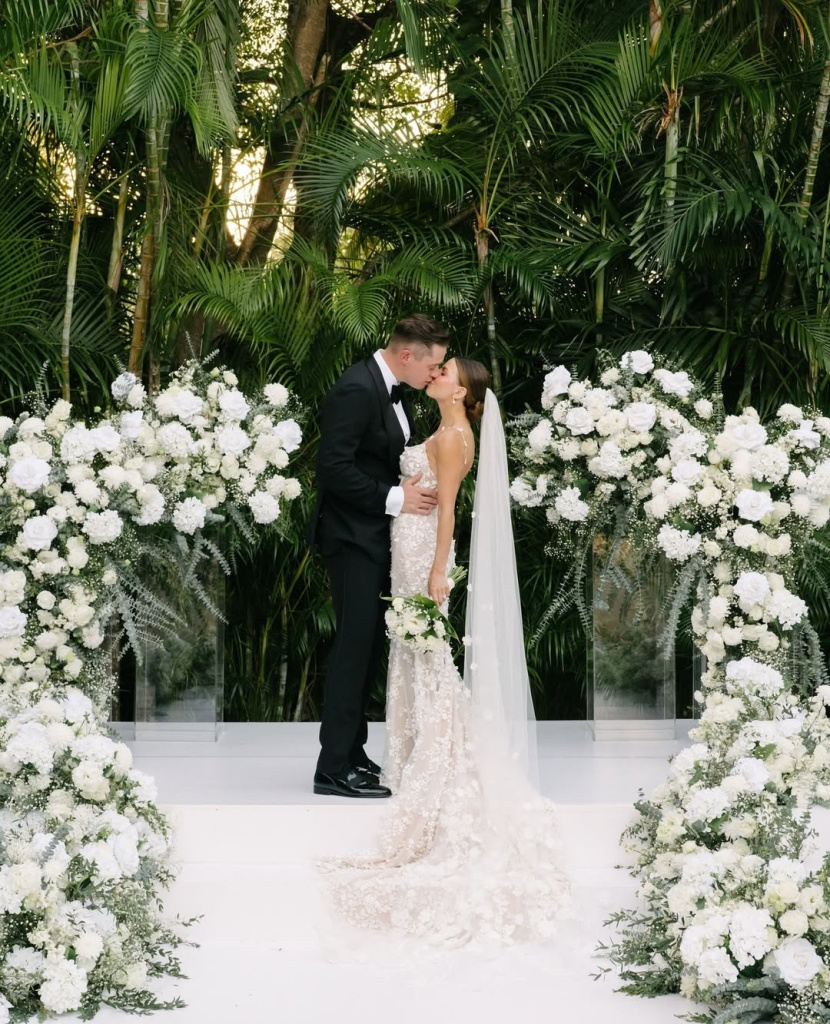
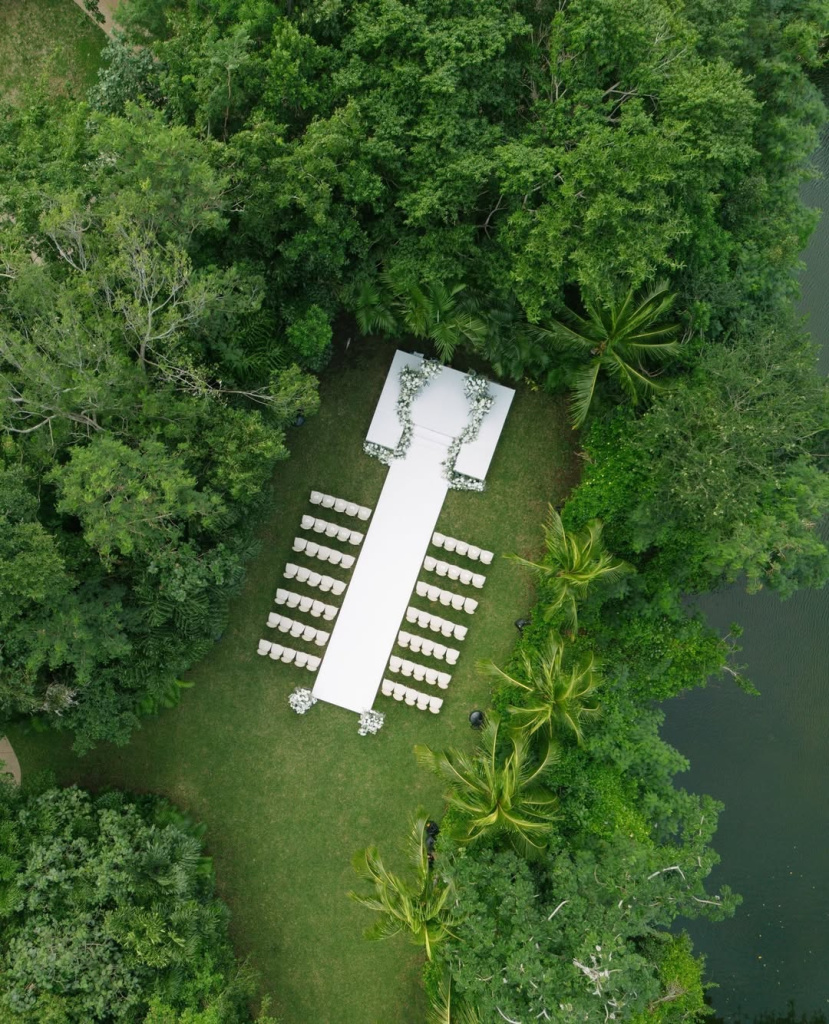
Best Locations for Weddings in Mexico
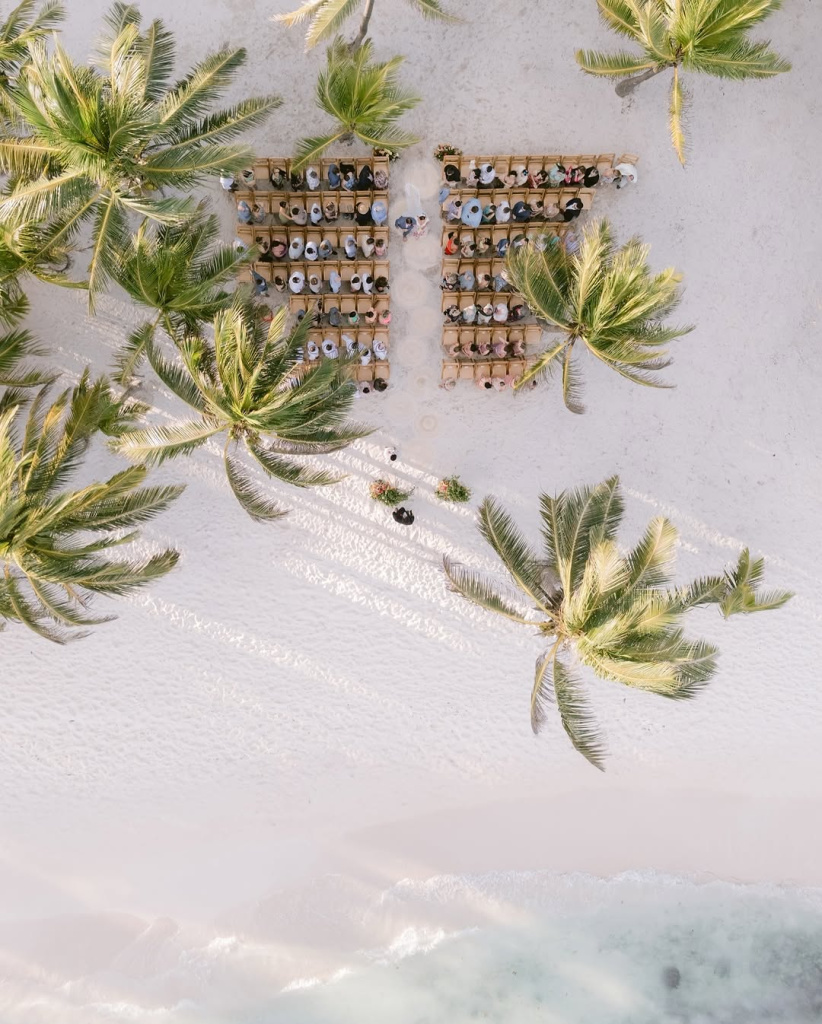
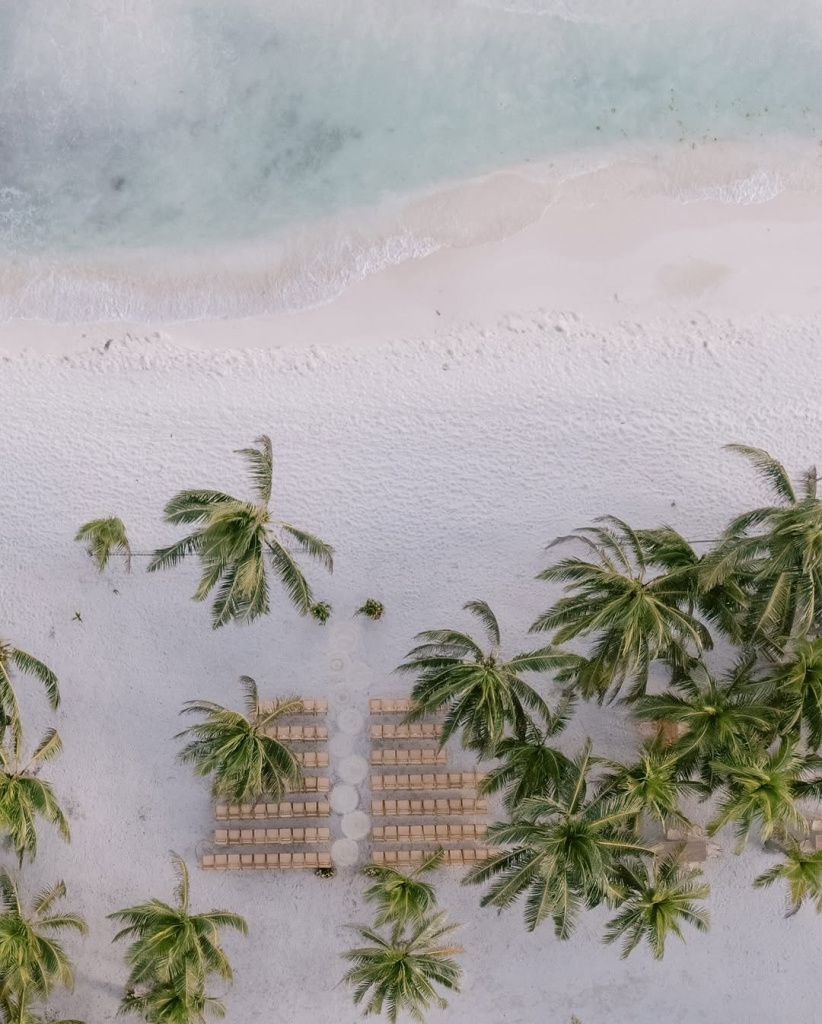
Mexico is renowned for its diverse landscapes and rich cultural heritage, making it a favorite for couples looking to tie the knot in a unique and picturesque setting. From sun-kissed beaches to historic towns, here's a detailed look at some of the best locations across the country where you can plan your dream destination wedding.
Cancun
Known for its crystal-clear Caribbean waters and vibrant nightlife, Cancun is perfect for couples seeking a blend of relaxation and entertainment. The city is home to numerous luxury resorts that specialize in all-inclusive wedding packages, offering pristine private beaches for ceremonies and lavish ballrooms for receptions.
Riviera Maya
Stretching along the Caribbean coastline, the Riviera Maya is a haven of secluded spots and stunning resorts. Towns like Playa del Carmen provide a lively atmosphere, while Tulum offers tranquility and ancient ruins set against dramatic cliffs. The area is also renowned for its beautiful cenotes (natural sinkholes), which make for truly unique wedding photos.
Cabo San Lucas
At the southern tip of the Baja California Peninsula, Cabo San Lucas is famous for its rocky arches and golden beaches. It's an ideal spot for luxury weddings, with top-notch resorts overlooking the Pacific Ocean. The dramatic landscape provides a stunning backdrop for sunset weddings.
Puerto Vallarta
On the Pacific Coast, Puerto Vallarta is surrounded by lush mountains and the Bay of Banderas. It offers a charming blend of old-world Mexican charm and modern luxury. The city's Zona Romantica is particularly picturesque, with cobblestone streets and quaint white buildings, perfect for intimate wedding photos.
San Miguel de Allende
A colonial-era city in Mexico’s central highlands, San Miguel de Allende is known for its baroque Spanish architecture, thriving arts scene, and cultural festivals. The city’s historic churches and beautiful villas offer a romantic setting for weddings, filled with warmth and rustic charm.
Cozumel
An island off the eastern coast of Mexico's Yucatán Peninsula, Cozumel is a quieter alternative to the bustling Cancun. Known for its world-class coral reefs, it’s a fantastic choice for couples who enjoy diving and snorkeling. Resorts on the island often host beachfront weddings with stunning ocean views.
Guadalajara
Mexico’s second-largest city offers a vibrant urban setting with a rich cultural heritage. The region is known for its tequila and mariachi music, both of which can be incorporated into wedding festivities. The surrounding countryside also features numerous haciendas and ranches ideal for rustic, yet elegant weddings.
Oaxaca
Known for its indigenous cultures and traditions, Oaxaca is a vibrant city rich in history and art. The city’s colorful streets and colonial architecture provide a unique backdrop for a wedding. Local cuisine, particularly mole, can be a highlight of wedding menus here.
Todos Santos
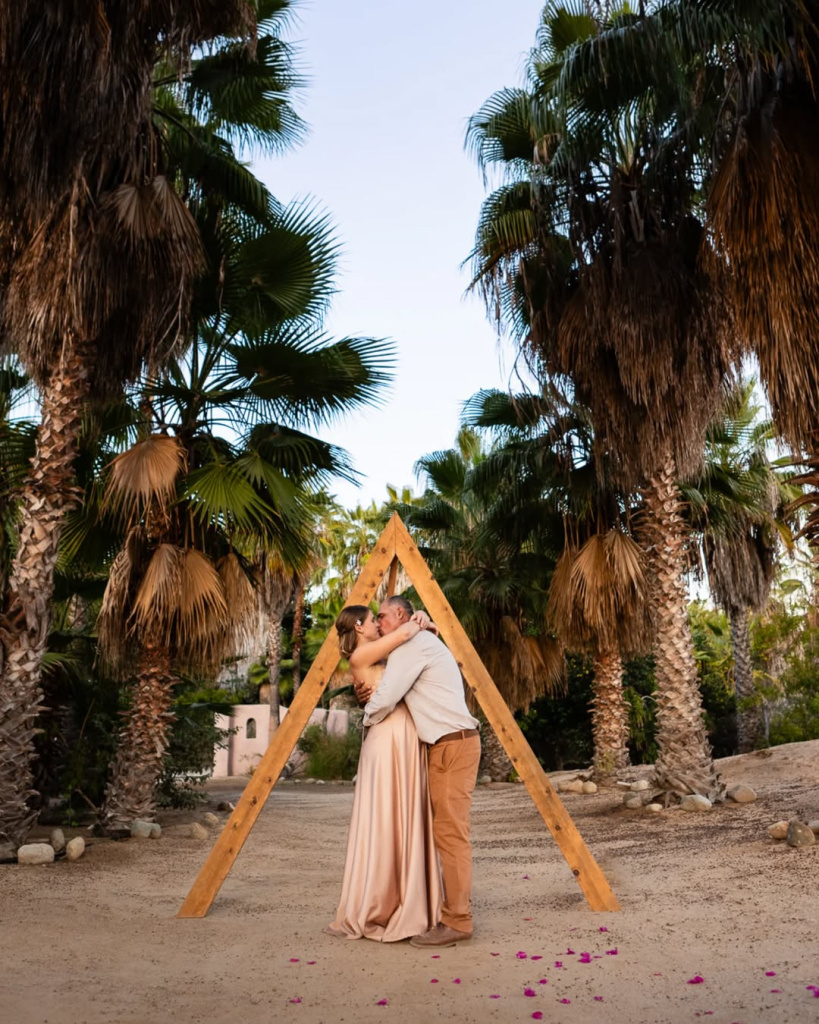
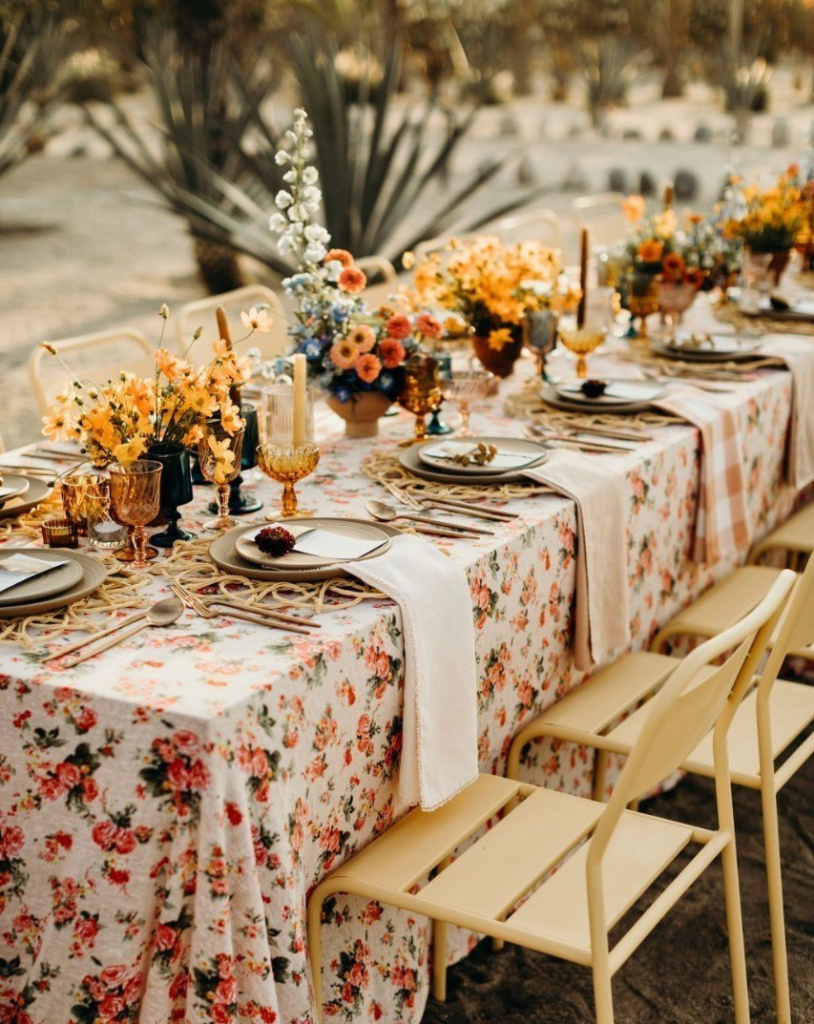
Nestled between the Pacific Ocean and the Sierra de la Laguna Mountains, Todos Santos offers a captivating blend of natural beauty and cultural richness, making it an ideal destination for couples seeking a unique wedding experience. This charming town in Baja California Sur is renowned for its pristine beaches, vibrant art scene, and historic architecture, providing a picturesque backdrop for your special day.
Lake Chapala
Mexico's largest freshwater lake is surrounded by mountains and charming towns like Ajijic. This serene setting is perfect for couples looking for a peaceful, scenic location that combines natural beauty with small-town charm.
Isla Mujeres
Just a short ferry ride from Cancun, Isla Mujeres offers a more laid-back atmosphere. The island's Punta Sur provides breathtaking views of rugged cliffs and turquoise waters, ideal for a dramatic wedding setting.
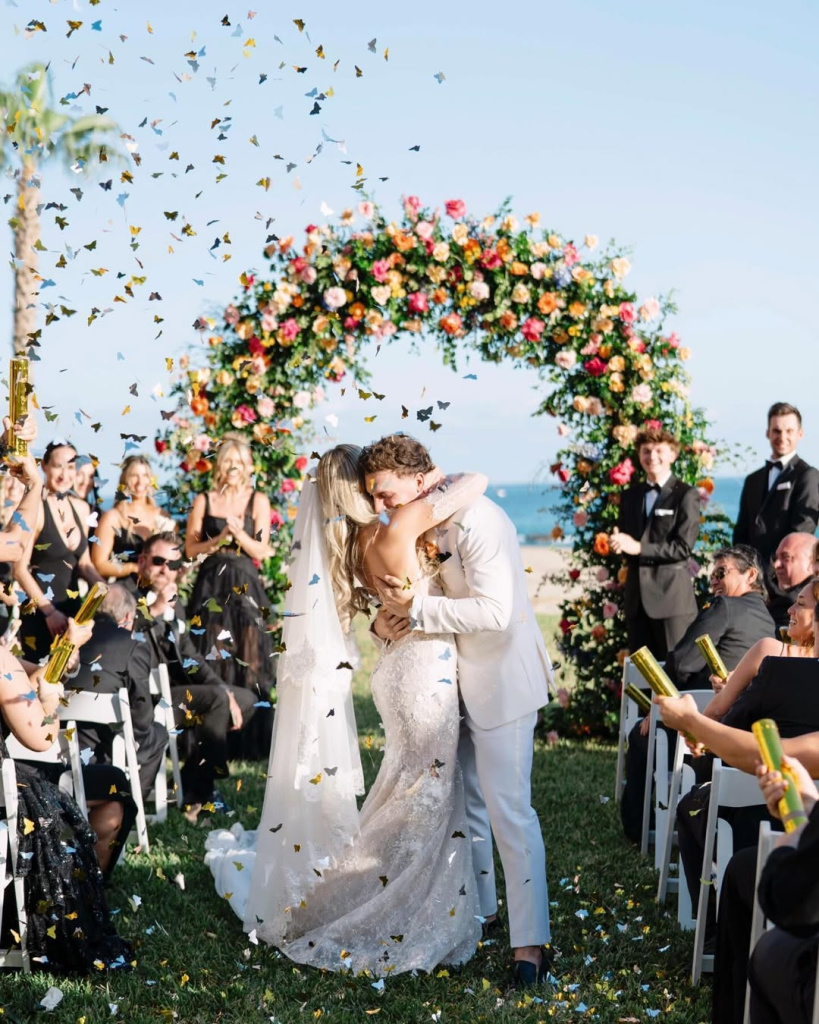
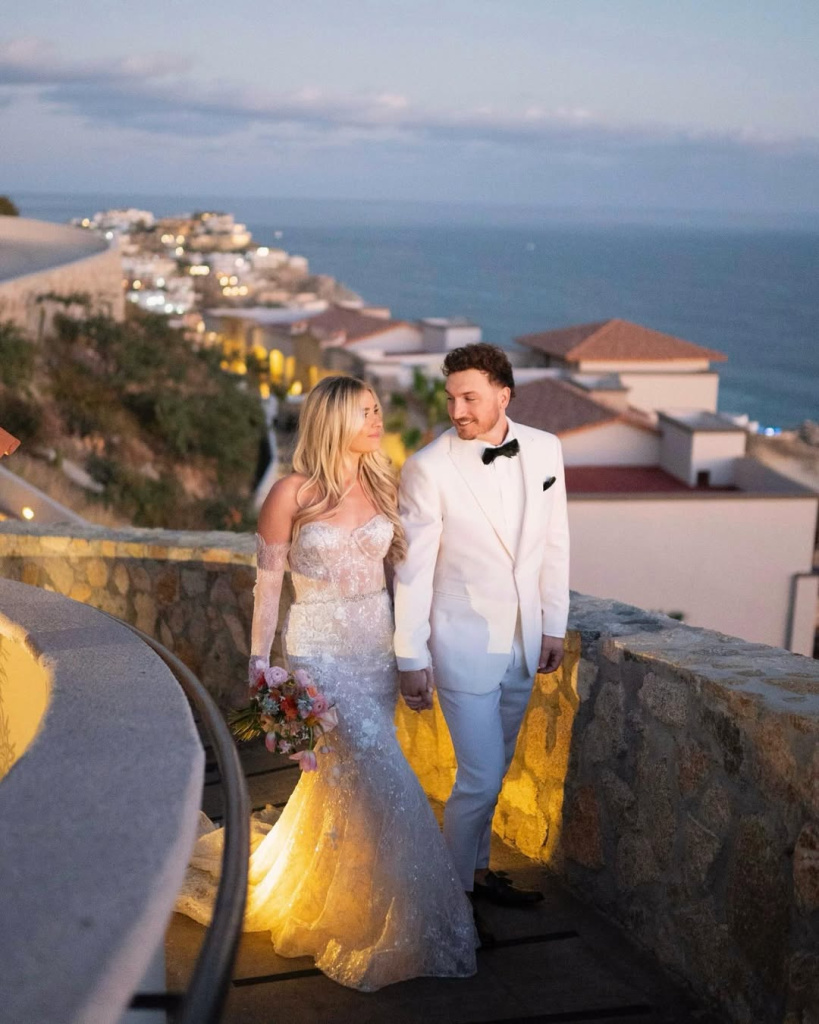
Legal Requirements for Getting Married in Mexico
Planning a destination wedding in Mexico involves more than just selecting the perfect venue and theme; it requires navigating the legal requirements to ensure your marriage is recognized both in Mexico and your home country. This part pf our complete guide on planning a wedding in Mexico provides a comprehensive look at the legal intricacies involved, helping you understand and manage these necessities effectively to avoid any complications.
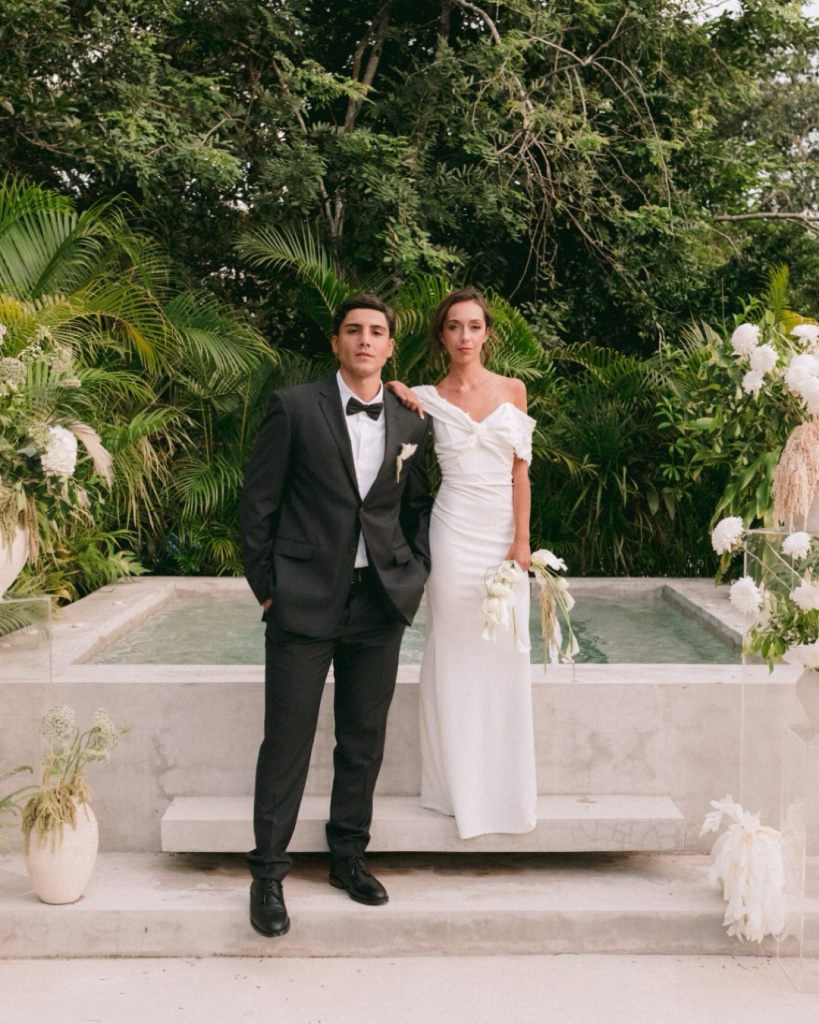
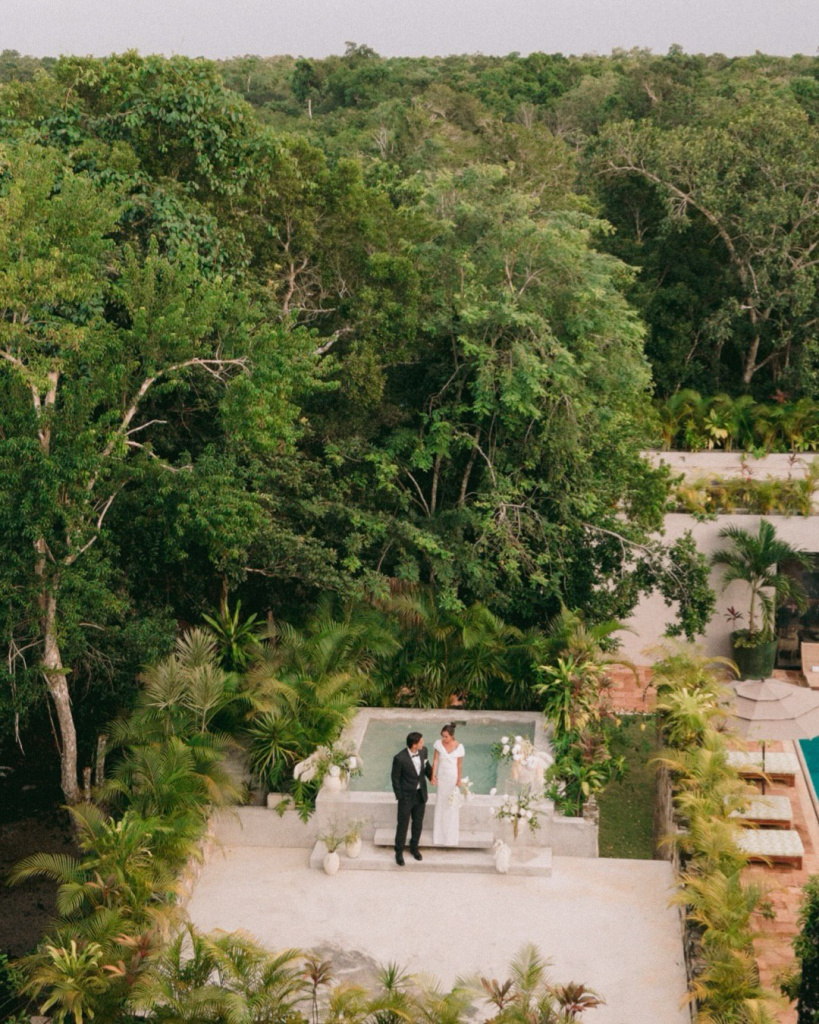
Necessary Documentation
To get married in Mexico, there are several documents you and your partner will need to prepare:
- Passports: Valid passports are required for both parties as proof of identity.
- Tourist Permits: These are typically issued upon your arrival in Mexico; make sure to keep them safe as they must be presented when you apply for a marriage license.
- Birth Certificates: You will need to bring your birth certificates, which must be apostilled (officially certified) and translated into Spanish by a certified translator.
- Divorce Decrees: If either party has been previously married, you’ll need to provide divorce decrees, also apostilled and translated.
- Death Certificates: In cases where a previous spouse has passed away, the corresponding death certificate may be required, subject to the same apostille and translation requirements.
Health Checks
Some Mexican states require foreigners to undergo specific medical tests before marrying:
- Blood Tests: These are to check for STDs and blood type, and must be performed in Mexico, as the results need to be in Spanish and are typically only valid for a limited period (often 15 days).
- Chest X-rays: Some states also require chest x-rays as part of the health check.
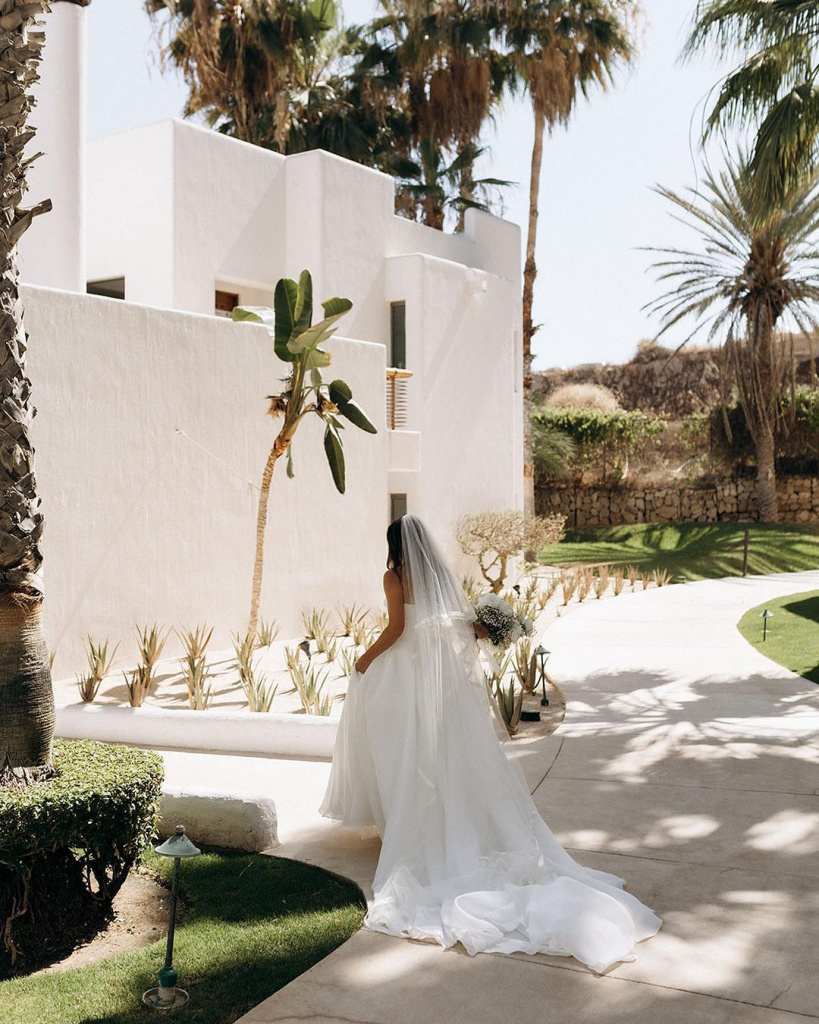
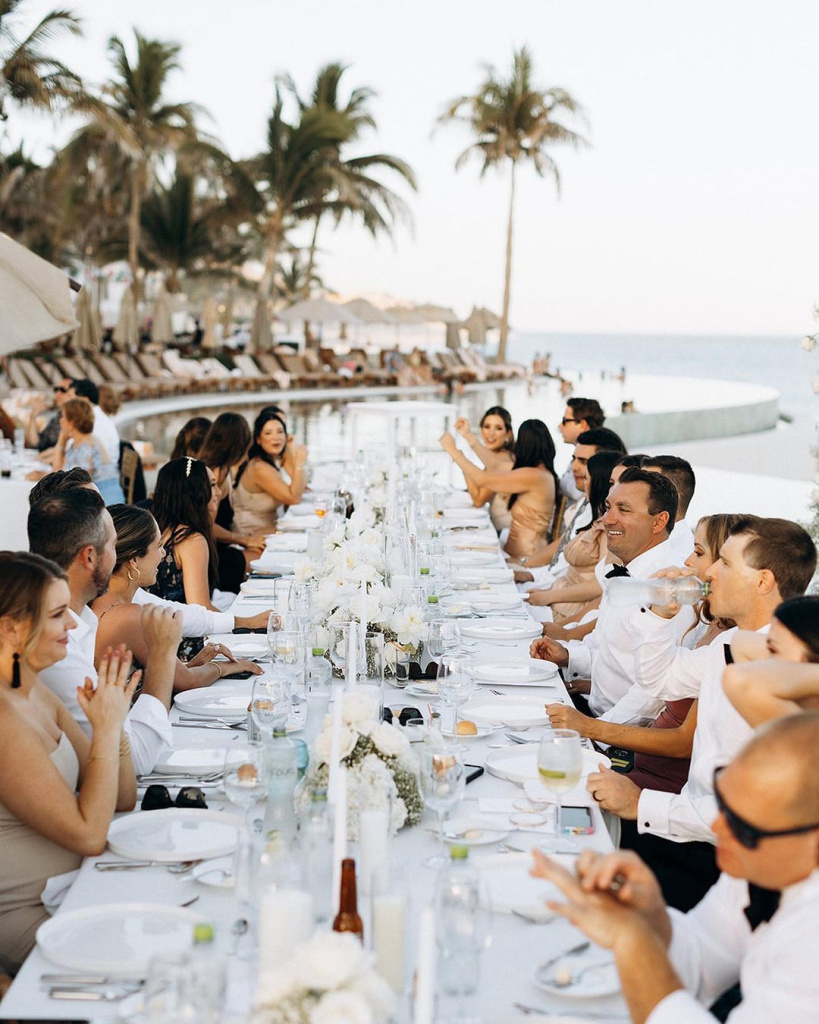
These tests are usually arranged by your wedding planner or the local registry office.
Witnesses
You will need to have at least four witnesses present at your ceremony, with valid identification (usually passports). All witnesses must also be over the age of 18.
Legal Ceremony vs. Symbolic Ceremony
It’s important to differentiate between a legal marriage and a symbolic one:
- Legal Ceremony: This involves all the aforementioned documentation and requirements and results in a marriage that is legally recognized worldwide. The ceremony must be performed by a registered Mexican Civil Registry Judge.
- Symbolic Ceremony: Many couples choose to have a symbolic ceremony in Mexico, which has no legal standing, often after legally marrying in their home country. This option eliminates the need for documentation and blood tests.
The Process
- Submission of Documents: All required documents need to be submitted to the local registry office in the Mexican state where the marriage will occur. This should be done several days before the wedding to allow time for processing.
- Marriage Application: Complete a marriage application form, which can be obtained from the local registry office.
- Ceremony: After all the paperwork is approved, you can have your civil ceremony, conducted by a judge. Note that the ceremony must be conducted in Spanish; if you do not speak Spanish, an interpreter may be required.
- Marriage Certificate: After the ceremony, you will receive a Mexican marriage certificate. This document should also be apostilled in Mexico if you need it to be recognized in your home country.
Special Considerations
- Same-Sex Marriages: Same-sex marriage is legal in several states in Mexico, including Mexico City, Quintana Roo, and Jalisco, among others. However, it’s crucial to check the current laws of the state where you plan to marry.
- Cultural Sensitivity: In some regions, local customs, and procedures might affect the process, especially in indigenous communities.

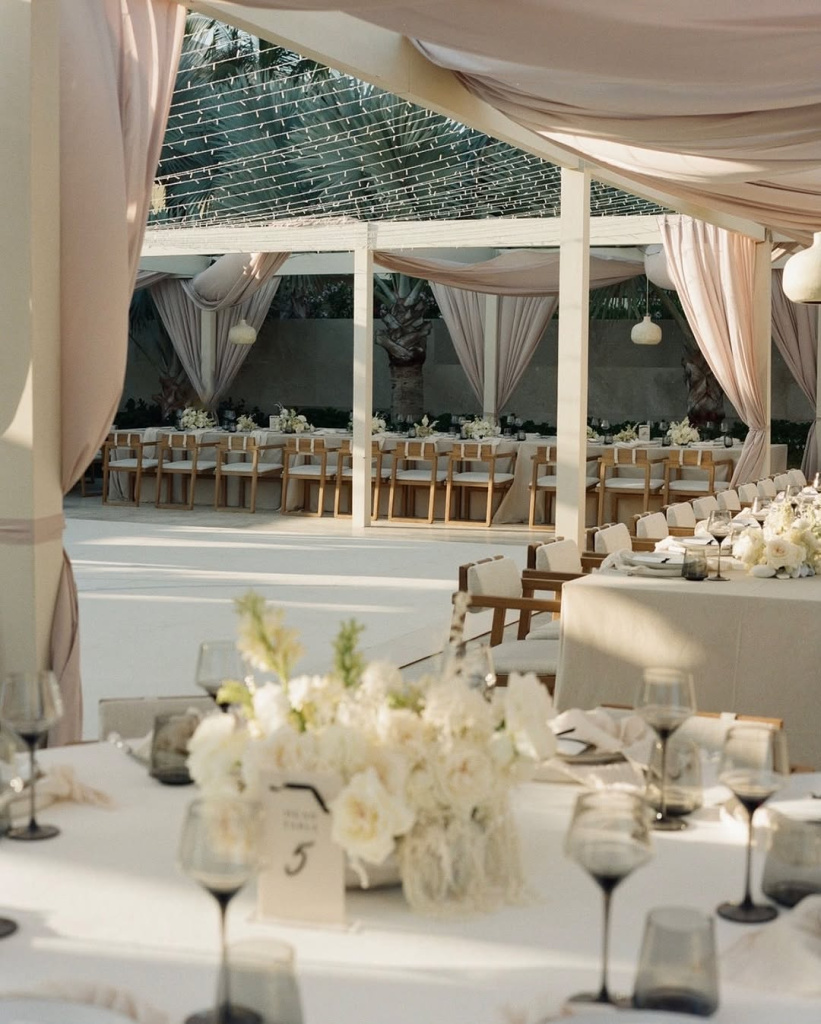
Budgeting for a Destination Wedding in Mexico
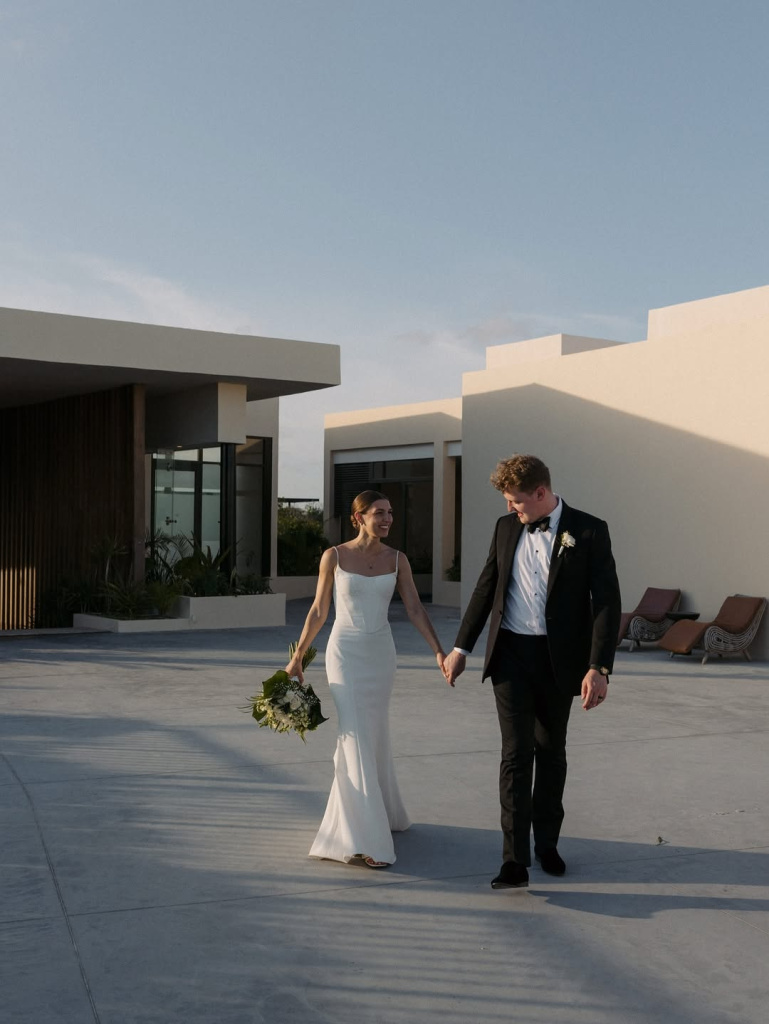
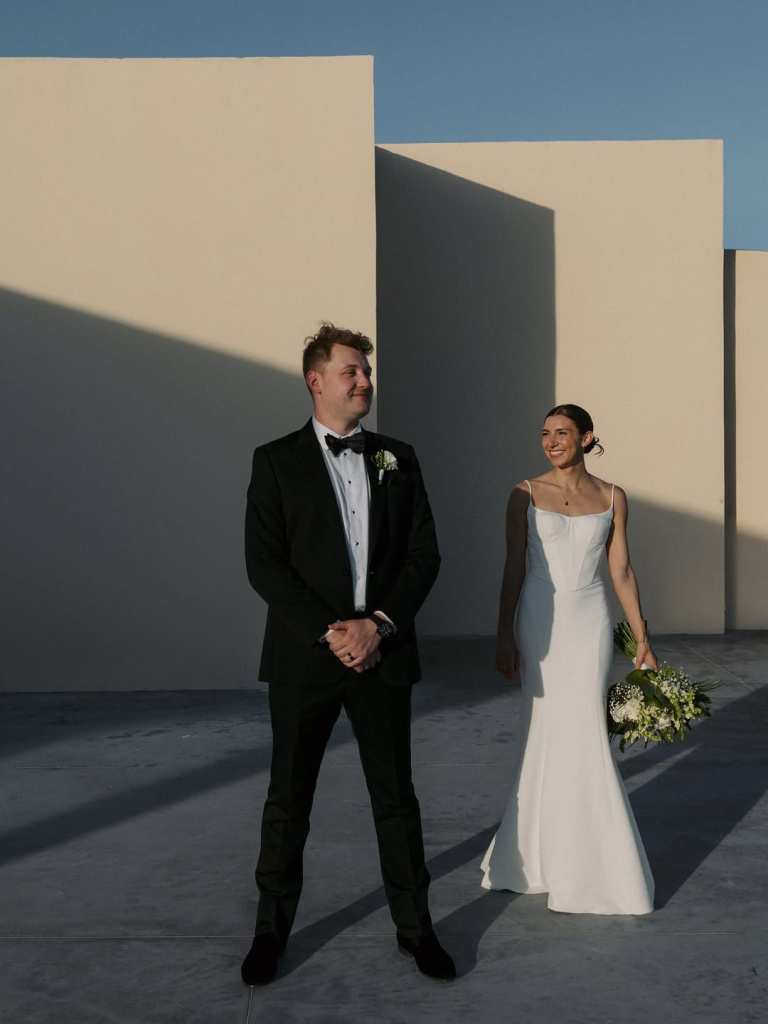
Planning your dream wedding in Mexico is an exciting prospect that can also be cost-effective compared to other popular destinations. To ensure you manage your budget effectively, here's a detailed guide, complete with a cost breakdown for a wedding with 100 guests, based on the latest pricing.
Key Cost Factors
- Venue: Choices range from all-inclusive resorts to private villas and historical sites. Costs can vary significantly based on the location and the inclusivity of the package.
- Catering: This includes food and beverages. Costs will depend on the menu complexity and the type of service (buffet vs. plated).
- Accommodations: Consider the number of guests and the length of their stay, as this can be one of the larger expenses.
- Photography and Videography: Essential for capturing your special moments. Prices vary by vendor expertise and package details.
- Decor and Floral Arrangements: Flowers and decorations set the ambiance of your wedding and prices fluctuate based on your aesthetic desires.
- Entertainment: From DJs to live bands, entertainment can be customized to fit the vibe of your wedding.
- Transportation: Organizing travel for guests between venues is a thoughtful touch.
- Miscellaneous Costs: Includes legal fees, wedding planner fees, and any other incidental expenses.
Detailed Cost Breakdown
Here’s what you might expect to spend for a wedding with 100 guests:
Venue Costs:
- All-inclusive resort: $7,000 - $15,000
- Private venue rental: $5,000 - $20,000
Catering:
- Per person cost: $50 - $200
- Total for 100 guests: $5,000 - $15,000
Accommodations:
- Average per night cost: $150 - $500
- Total for 20 rooms over 3 nights: $9,000 - $30,000
Photography and Videography:
- Photography: $3,500 - $12,000
- Videography: $2,000 - $3,500+
Decor and Floral Arrangements:
Total cost: $2,000 - $10,000
Entertainment:
- DJ: $500 - $1,500
- Live band: $2,000 - $10,000
Transportation:
Guest transportation: $500 - $1,000
Miscellaneous Costs:
Marriage license, legal fees, wedding planner: $2,400 - $5,400
Overall Estimated Cost:
- Lower Range (budget-friendly): $29,900
- Higher Range (premium options): $106,900
Cost-Saving Tips
- Negotiate with Vendors: Always try to negotiate better rates, especially if you’re marrying during the off-season.
- Reduce the Guest List: Consider a smaller wedding to significantly lower costs related to catering and accommodations.
- DIY Elements: Handling some elements yourself, like decorations or favors, can also help to cut costs.
With careful planning and a clear understanding of the costs involved, you can create a beautiful and memorable destination wedding in Mexico that aligns with your budget and personal style.
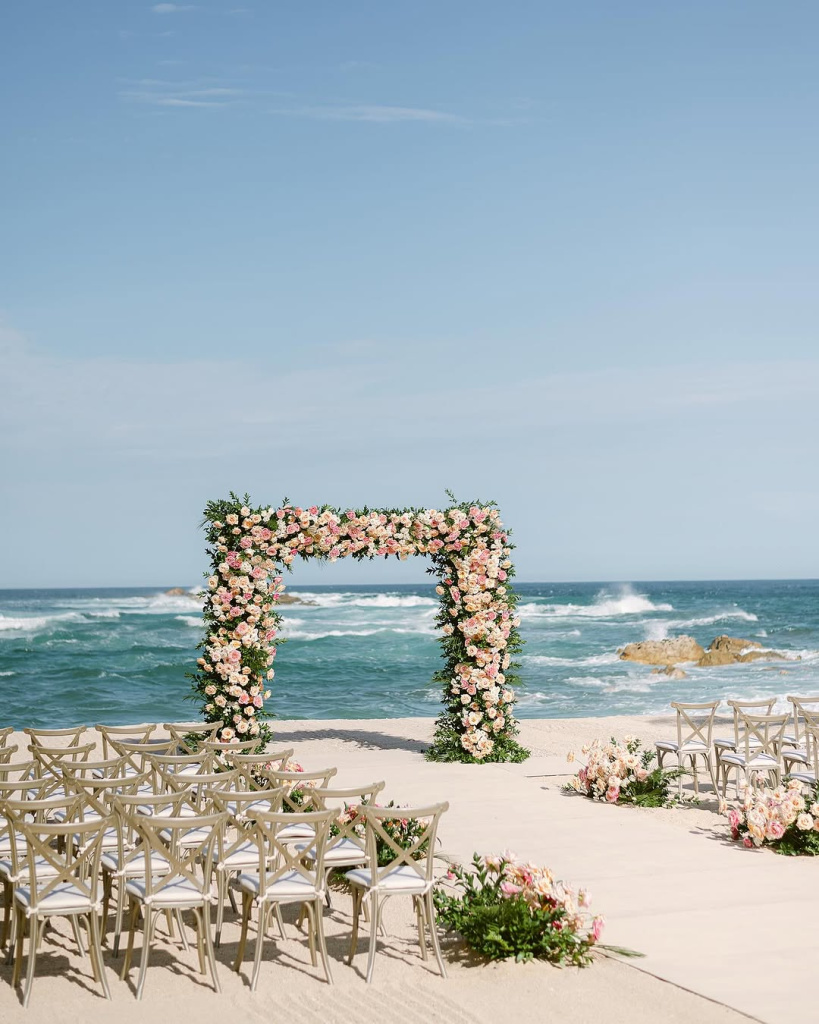
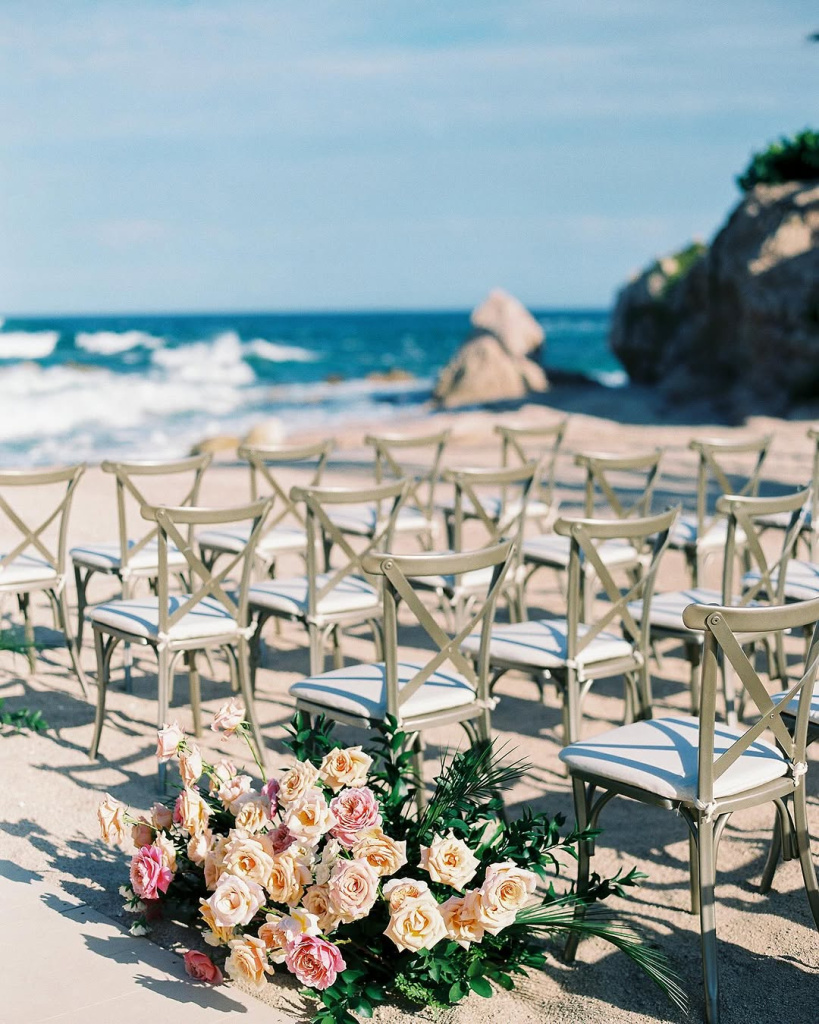
Mexican Destination Wedding Planning Guide: Choosing the Right Planner
Selecting the right wedding planner is a critical step when planning a destination wedding in Mexico. The right planner not only relieves stress but also ensures that every detail is perfectly aligned with your vision. Here’s how to find and choose the perfect wedding planner for your Mexican destination wedding.
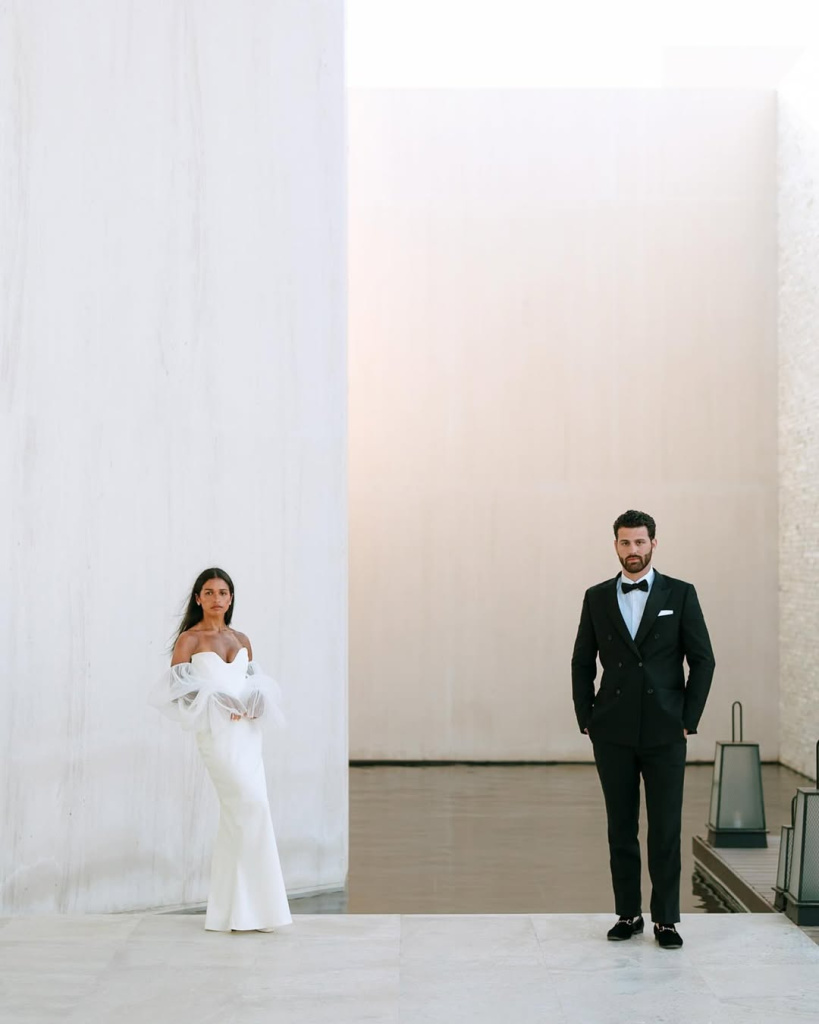
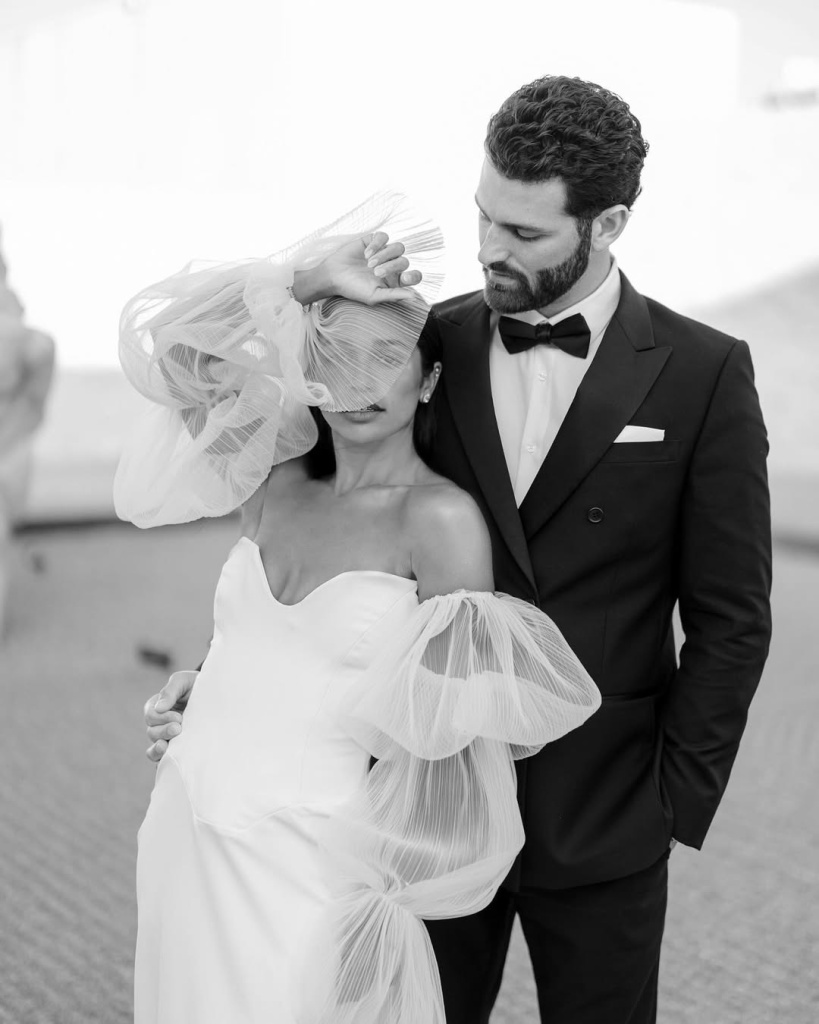
Understand the Role of a Wedding Planner
A wedding planner's role extends beyond simple coordination; they are your on-the-ground advocate, designer, budget manager, and problem solver. Their responsibilities typically include:
- Vendor Coordination: Selecting and managing relationships with local vendors such as florists, photographers, and caterers.
- Budget Management: Keeping your wedding expenses within your set budget while maximizing value.
- Legal and Logistical Guidance: Assisting with necessary paperwork and understanding local regulations.
- Event Design and Execution: Bringing your wedding theme and decor ideas to life.
- Day-of Coordination: Ensuring that everything runs smoothly on the day of the wedding.
Qualities to Look For
When choosing a wedding planner for your destination wedding in Mexico, consider these essential qualities:
- Experience with Destination Weddings: Look for a planner who specializes in destination weddings and has specific experience in Mexico.
- Local Expertise: A planner with strong local connections can navigate challenges and provide access to the best vendors.
- Language Skills: Ideally, your planner should be fluent in both English and Spanish to effectively communicate with you and local vendors.
- Attention to Detail: Given the complexities of a destination wedding, meticulous attention to detail is crucial.
- Flexibility and Creativity: They should be able to adapt to changing circumstances and come up with creative solutions to any problem.
Researching Potential Planners
Start your search with these steps:
- Referrals: Ask friends, family, or other wedding professionals for recommendations.
- Online Reviews: Websites like Wezoree or even Google reviews can provide insights into a planner's reputation.
- Social Media and Portfolios: Check their social media profiles and websites to view previous weddings they’ve managed, paying close attention to those that match the style or theme you envision.
Interviewing Candidates
Once you’ve narrowed down your list, set up interviews (video calls are great for destination planners) with each candidate to ask questions such as:
- How many weddings do they handle per year?
- How familiar are they with your chosen venue?
- Can they provide a detailed list of services?
- What is their emergency contingency plan?
- How do they handle vendor payments and contracts?
- Can they provide references from past clients?
Decision Factors
After interviewing, consider these factors before making your decision:
- Compatibility: You should feel comfortable and confident in their presence, as you’ll be working closely with them.
- Pricing Structure: Understand how they charge—whether it’s a flat fee, a percentage of the wedding cost, or an hourly rate—and ensure it fits within your budget.
- Contract Clarity: Ensure their contract is clear on deliverables, payment schedules, and cancellation policies.
Once you choose a planner, establish a clear communication plan. Regular updates and check-ins can help keep everything on track and build a strong working relationship. With the right planner, you can enjoy the planning process while ensuring that your wedding day in Mexico is as magical as you envisioned it to be.
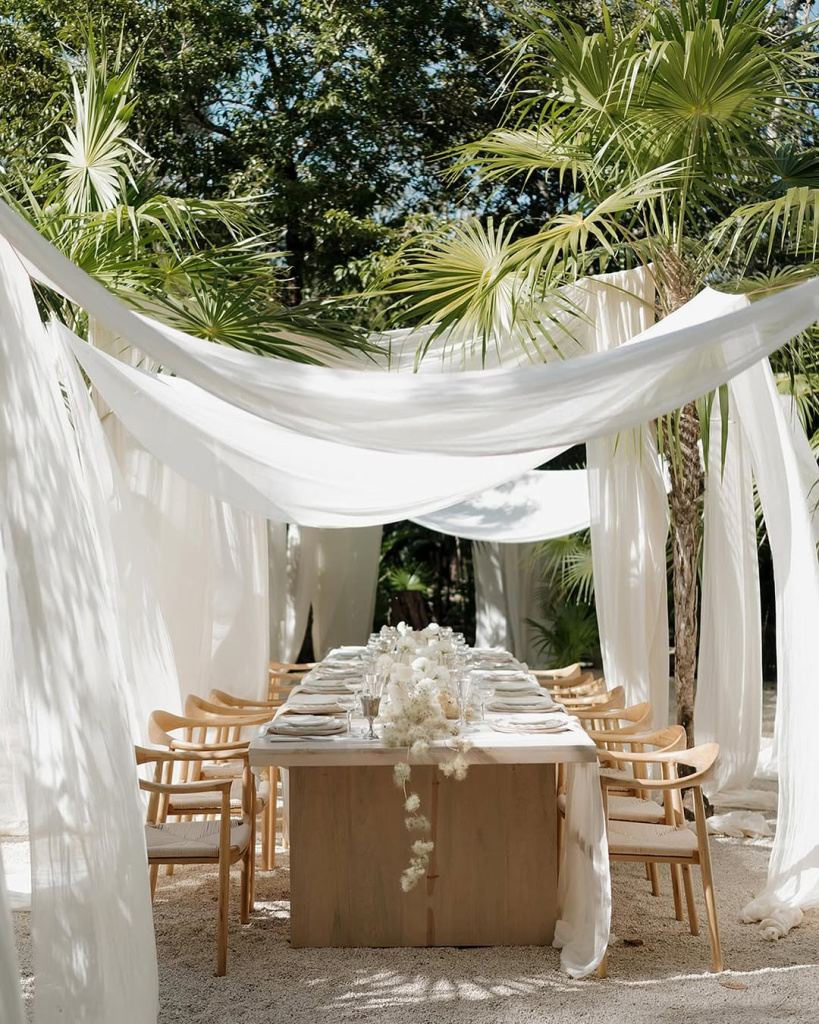
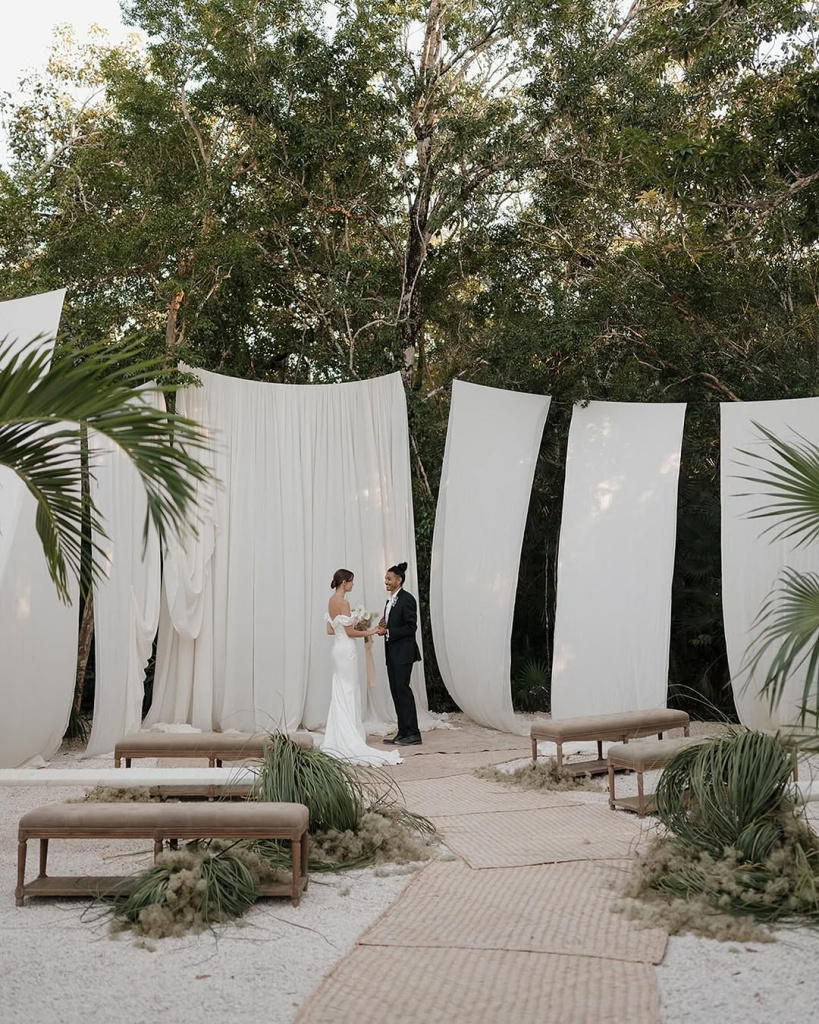
The Ultimate Guide to Destination Weddings in Mexico: Selecting the Perfect Venue
Choosing the perfect venue is one of the most important decisions you'll make for your destination wedding in Mexico. The venue sets the tone for the entire event and can influence everything from the guest experience to the wedding photos. Here’s how to ensure you select the ideal location that aligns with your vision and practical needs.
Define Your Wedding Style
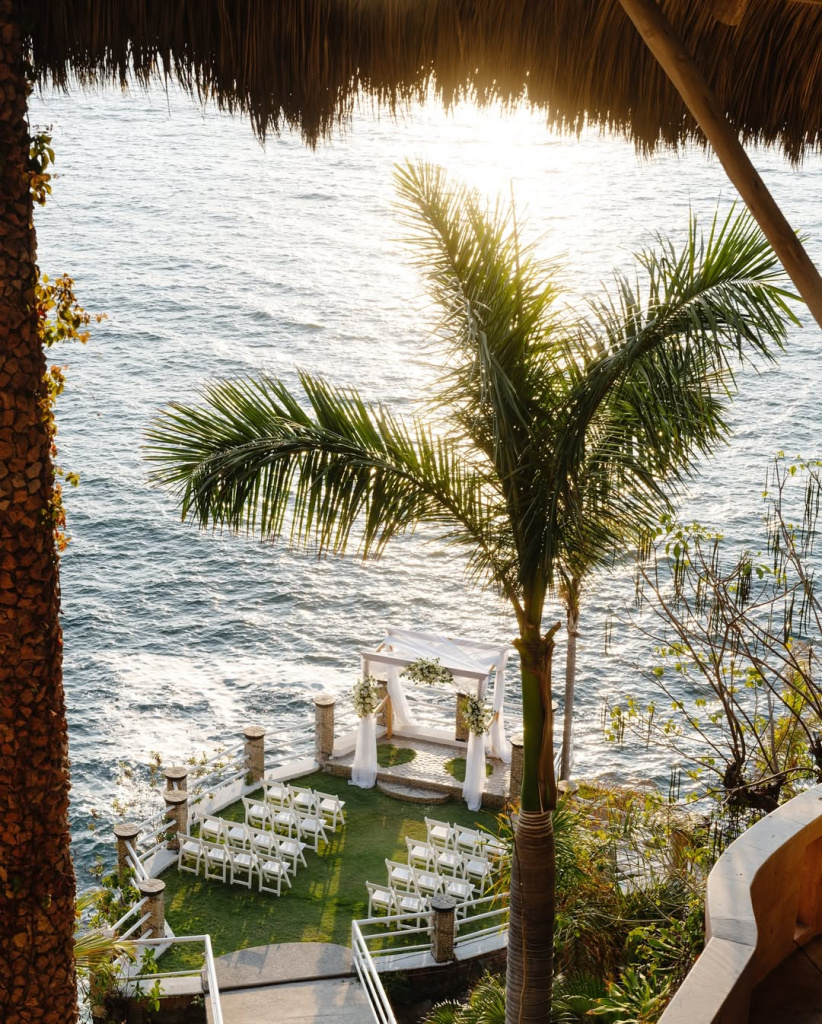
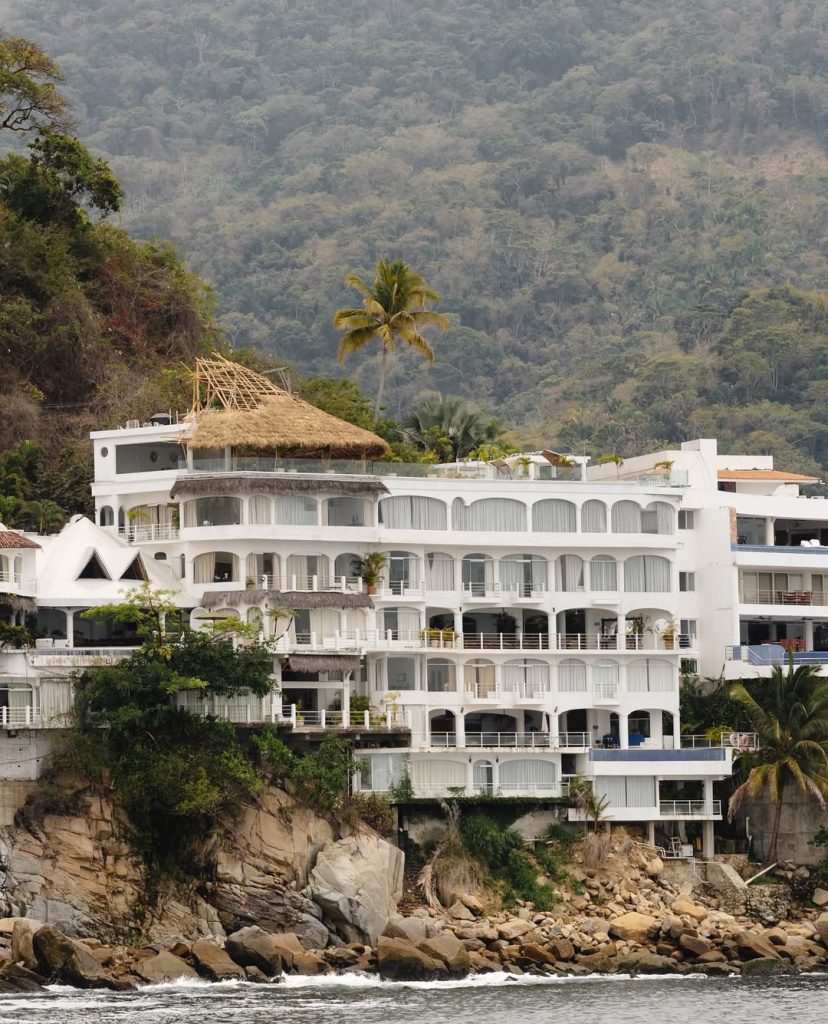
Before you start your venue search, define the style and atmosphere you want for your wedding. Do you envision a relaxed beachfront ceremony, a lavish affair in a luxury resort, or a more intimate celebration in a historic hacienda? Your venue choice should reflect the overall theme and style of your wedding.
Consider the Location
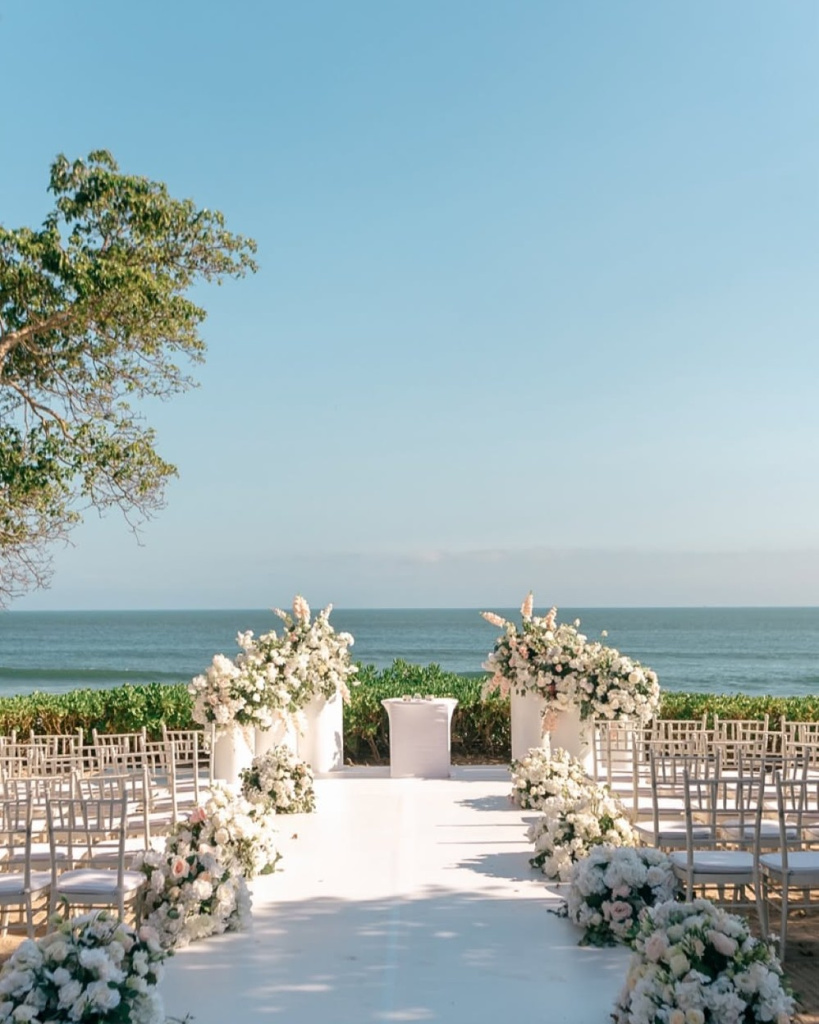
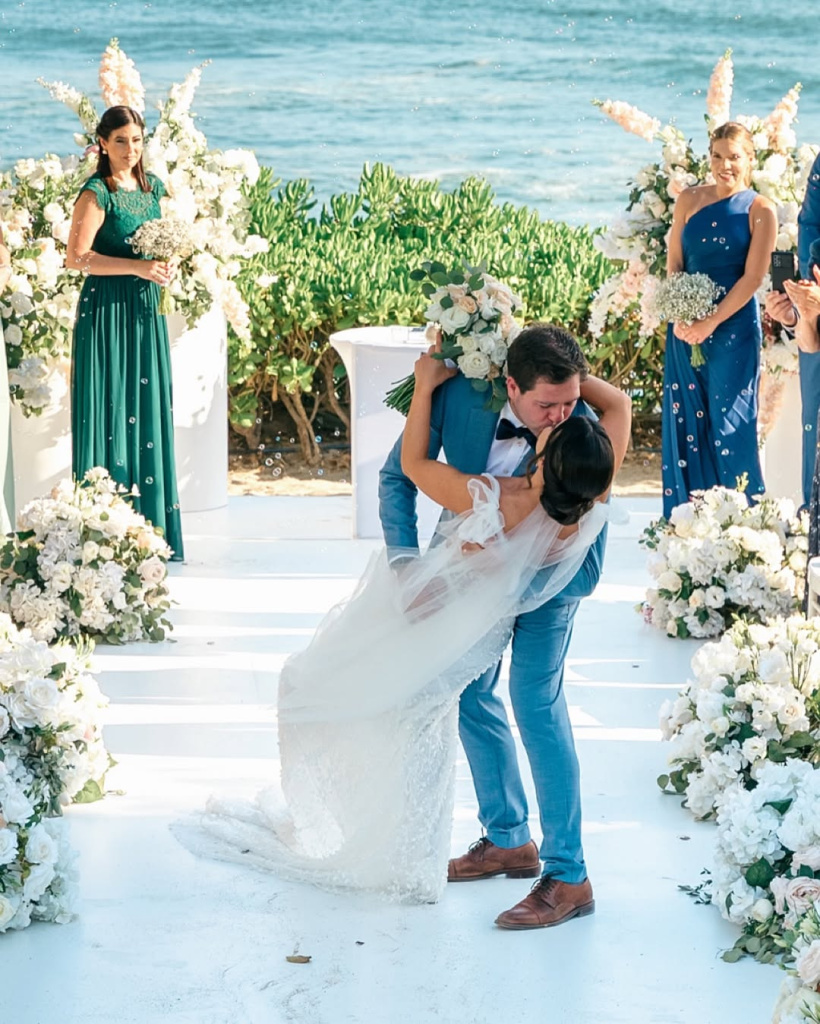
Mexico offers a variety of stunning locations, each with its unique charm:
- Beach Resorts: Popular in areas like Cancun, Riviera Maya, and Los Cabos. These venues are ideal for couples looking for a picturesque beach setting with all-inclusive convenience.
- Colonial Cities: Cities like San Miguel de Allende and Oaxaca offer historic venues, such as old mansions and courtyards, perfect for a culturally rich wedding.
- Luxury Hotels and Resorts: For a touch of glamour and full-service offerings, consider luxury resorts in places like Punta Mita and Playa del Carmen.
- Private Villas and Haciendas: Offer a more personalized and exclusive experience, often found in Valle de Bravo and Tulum.
Evaluate the Venue Offerings
When assessing potential venues, consider the following key factors:
- Capacity: Ensure the venue can comfortably accommodate your guest list, both for the ceremony and reception.
- Accessibility: Consider how easy it will be for guests to travel to the venue, especially if many will be flying into Mexico. Proximity to an airport and availability of local transportation should be considered.
- Amenities: Look for venues that offer essential amenities such as on-site accommodation, catering options, and indoor/outdoor settings.
- Privacy: Particularly important for more intimate or high-profile events. Some venues offer exclusive hire, ensuring that no other parties will share your space.
Visit the Venue
If possible, plan a scouting trip to visit your shortlisted venues. This allows you to experience the space, meet with the venue coordinators, and assess the surroundings. If you can’t visit in person, request a virtual tour and gather as much photographic and video material as you can.
Understand the Costs
Get a detailed breakdown of what is included in the venue hire fee. Ask about:
- Rental Fees: What is included in the base price? Are there any additional costs for setup, breakdown, or overtime?
- Catering and Beverage Policies: Does the venue offer in-house catering, or will you need to bring in external vendors? What are the alcohol policies?
- Vendor Restrictions: Some venues have preferred or exclusive vendors you must use, which could affect your budget and vendor choices.
Review Venue Contracts
Thoroughly review the contract provided by the venue. Pay attention to cancellation policies, deposit requirements, and what contingencies they have in place for issues like bad weather or unforeseen events.
Consider Guest Experience
Think about the experience you want your guests to have. The venue should have adequate facilities and comforts, and activities either on-site or nearby, especially if you’re planning a multi-day event.
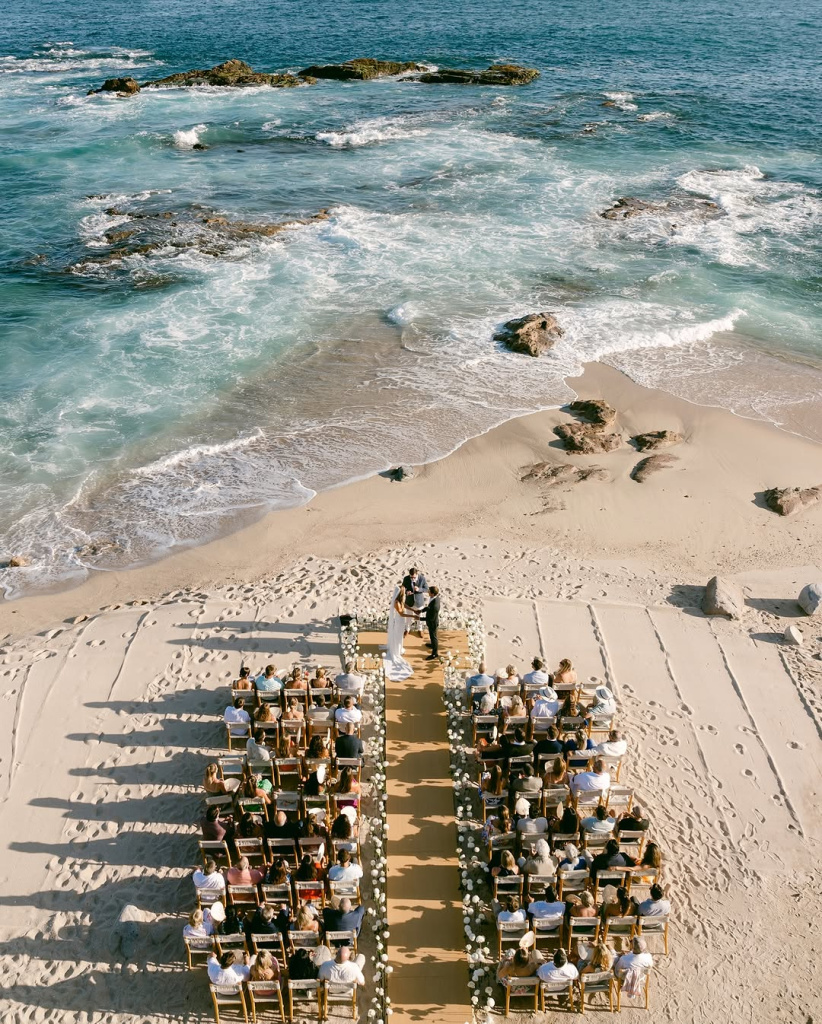
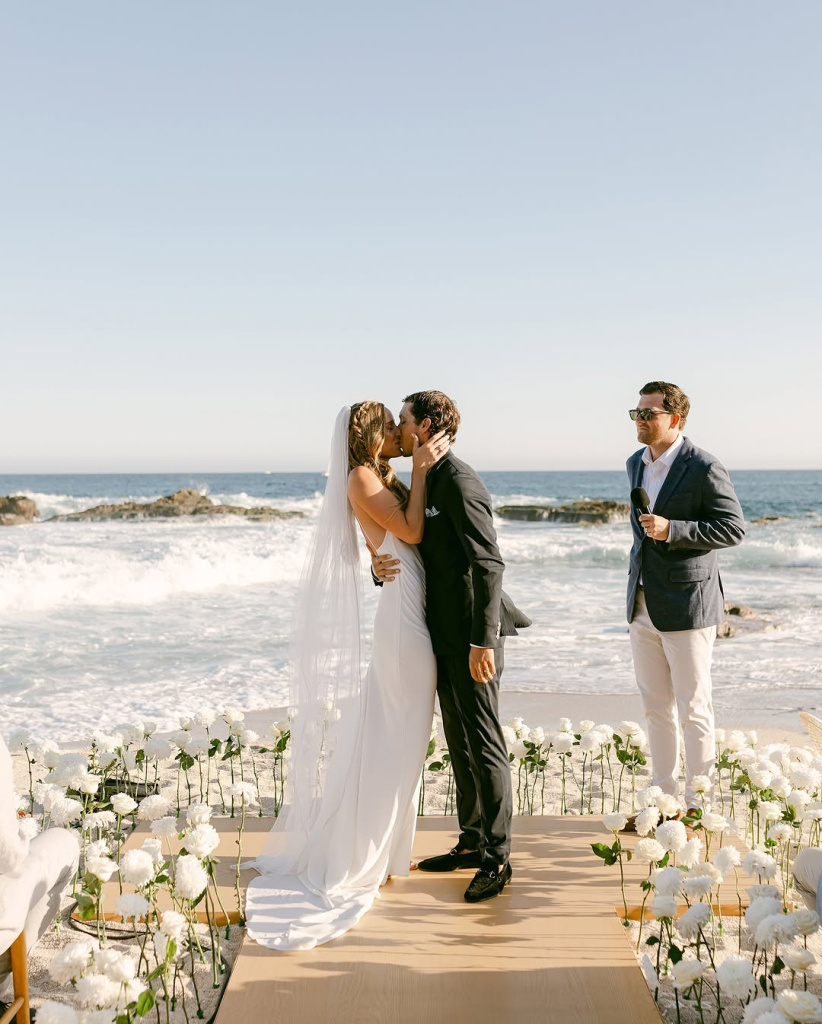
Photography and Videography Tips for Your Mexican Wedding
Capturing the beauty and emotion of your destination wedding in Mexico requires thoughtful planning when it comes to photography and videography.
Choosing the Right Photographer and Videographer
- Experience with Destination Weddings: Look for professionals who specialize in or have considerable experience with destination weddings. They should be adept at capturing the essence of the location and handling the unique challenges that come with outdoor settings.
- Familiarity with the Venue: It’s advantageous to hire a photographer and videographer who are familiar with your chosen venue. They will know the best spots for shots and how to handle lighting in various parts of the venue throughout the day.
- Style Compatibility: Review their portfolios to ensure their style matches your vision. Whether you prefer candid, documentary-style photos or more posed, artistic shots, seeing their previous work can give you confidence in their ability to deliver.
- Local vs. Bringing Your Own: Hiring local talent can be beneficial as they have local knowledge and may be more cost-effective. However, bringing a photographer from home can be valuable if you’ve already established a rapport or are looking for a specific style.
Planning Your Photography and Videography
- Pre-Wedding Consultation: Meet with your photographer and videographer (in person or virtually) to discuss your schedule, expectations, and any must-have shots. Make sure they know the timeline and any cultural elements or traditions that are important to capture.
- Site Visit: If possible, arrange for your photographer and videographer to visit the venue with you before the wedding. This visit can help them plan shots, understand the lighting, and identify potential challenges.
- Shot List: Create a detailed shot list including key moments you want captured, such as the exchange of vows, the first dance, family portraits, and candid moments. Also, specify any unique aspects of the location or décor that are important to you.
- Timing for Best Light: Discuss the best times for photography and videography, especially if you want to capture sunset photos or golden hour moments. Good lighting is crucial for stunning visuals.
- Backup Plans: Ensure they have backup equipment and a plan for unexpected weather conditions, especially important in beach or outdoor settings where wind and sand can be factors.
Tips for Maximizing Photo and Video Quality
- Dress Rehearsal: Consider a dress rehearsal to test how the wedding outfits look on camera. This can help you adjust anything that doesn’t work as well visually.
- Communicate Clearly: Keep open lines of communication with your photographer and videographer throughout the day. Equip a member of your wedding party to assist by pointing out key guests and coordinating people for group shots.
- Consider a Drone: For a unique perspective, especially in scenic locations like beaches or historical sites, consider hiring a videographer who can operate a drone. This can capture stunning aerial views of your venue and ceremony.
- Post-Production Preferences: Discuss your preferences for editing styles, colors, and any special effects you like with your videographer and photographer. Knowing these preferences in advance can help them tailor the final product to your taste.
After the Wedding
Confirm how long it will take to receive your photos and videos post-wedding. Knowing when you’ll receive your edited images and videos can help manage expectations. Ask about options for preserving your images, such as through high-quality albums or digital backups, to ensure you keep these memories safe for years to come.
Making the Most of Scenic Backdrops When Planning Your Mexican Dream Wedding
Mexico offers an array of breathtaking landscapes that can transform your wedding into a visually stunning event. Whether it’s the pristine beaches, lush jungles, historic ruins, or charming colonial cities, utilizing these scenic backdrops effectively can elevate the atmosphere and experience of your wedding.
Selecting the Right Location
- Research Extensively: Start by researching the different landscapes Mexico has to offer. From coastal vistas in Cancun to the architectural wonders in San Miguel de Allende, each location offers unique opportunities for spectacular wedding photos and ambiance.
- Visit in Person: If possible, visit the locations you are most interested in. Seeing them in person can help you visualize your day and how different settings might be used for various parts of your wedding, from the ceremony to the reception.
- Timing is Everything: Consider the time of year and the day when choosing your location. The lighting, weather, and tourist crowds can significantly affect the practicality and aesthetics of your wedding.
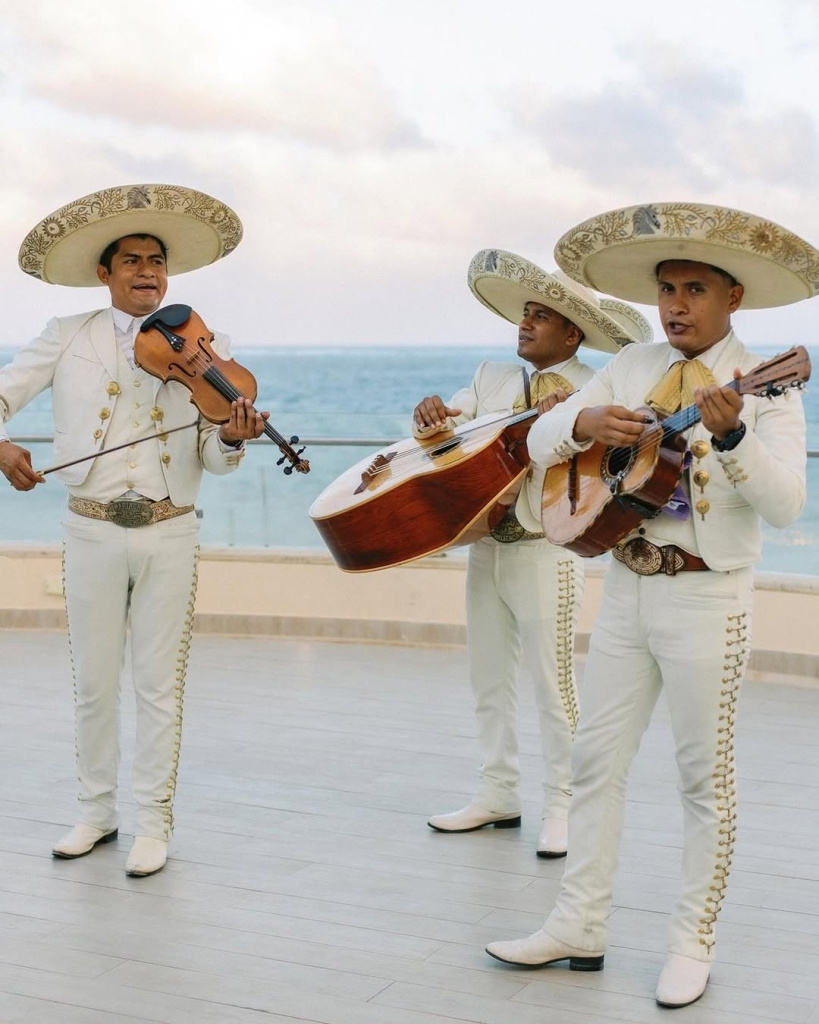
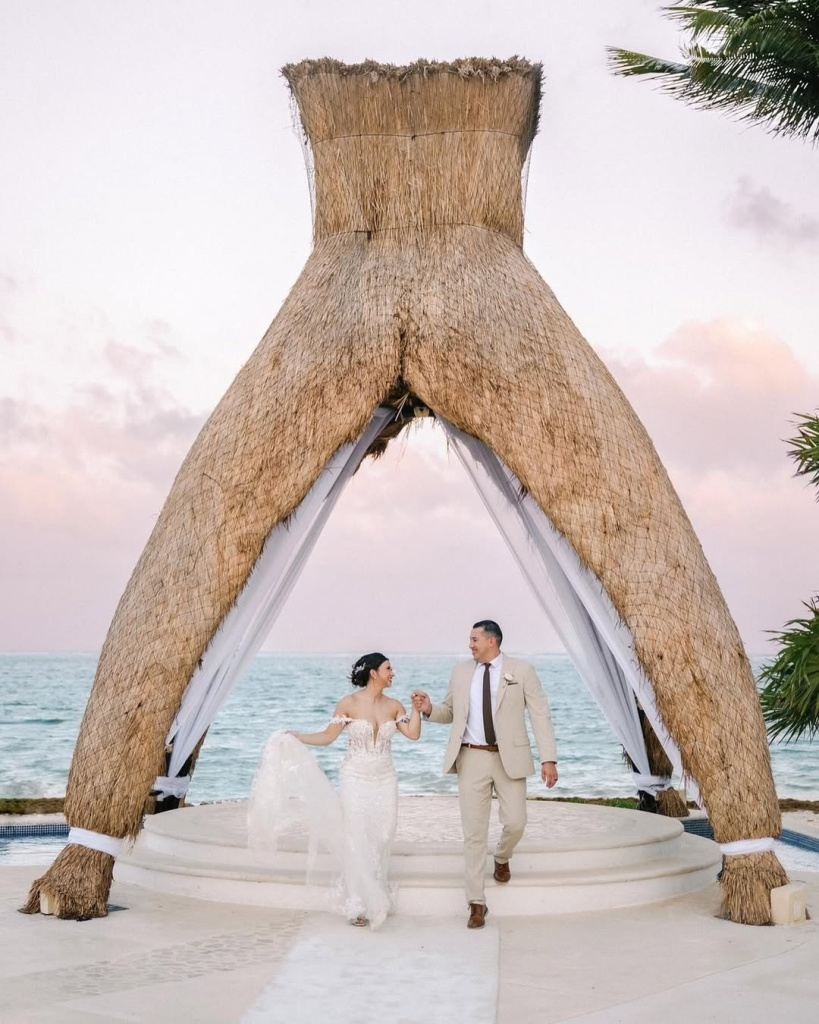
Integrating the Scenery into Your Wedding Theme
- Theme Alignment: Choose a wedding theme that complements the natural beauty and cultural backdrop of the location. For instance, a beach wedding might have a breezy, nautical theme, while a wedding in a historic hacienda could lean towards rustic elegance.
- Decor Enhancements: Use decor that enhances rather than competes with the natural surroundings. Minimalist styles often work best in scenic locations as they allow the backdrop to shine.
- Natural Elements: Incorporate local flowers, plants, and materials into your decor to create a cohesive look that celebrates the Mexican landscape.
Leveraging Scenery for Your Ceremony and Reception
- Ceremony Placement: Position your ceremony to make the most of the scenic views. For a beach wedding, consider a sunset ceremony when the lighting is golden. For a forest setting, a clearing that opens to the sky can create a magical ambiance.
- Reception Layout: Plan your reception layout to maximize the view. An open-air tent or a reception under the stars can captivate your guests while making the landscape a central feature of your celebration.
- Photo Opportunities: Plan specific times and places for your wedding photos. Use the most picturesque spots around your venue during the best lighting conditions, typically during the golden hour shortly after sunrise or before sunset.
By carefully planning and integrating the stunning Mexican landscapes into your wedding, you ensure not only beautiful photographs and memories but also an immersive experience that you and your guests will cherish forever.

Essentials for Planning a Destination Wedding: Finding the Perfect Florist
Selecting the right florist is crucial for setting the tone and enhancing the aesthetic of your destination wedding in Mexico. Flowers can transform your venue, complement the scenic backdrops, and add a touch of local flavor to your celebration.
Research Local Florists
Begin researching local florists as soon as you have your wedding date and venue confirmed. This will give you ample time to review their portfolios and ensure they can deliver the style and quality you desire.
Look at reviews on wedding-specific sites like Wezoree, and ask potential florists for references or case studies from previous weddings. This can give you insight into their reliability and the quality of their work.
Assess Style and Expertise
Carefully review the florist’s portfolio to ensure their style aligns with your vision. Pay attention to their use of color, texture, and the types of arrangements they specialize in, such as bouquets, centerpieces, and floral arches. It's beneficial if the florist has experience incorporating local flowers and plants into their designs, as these elements can help your wedding blend beautifully with the Mexican landscape.
Discuss Logistics and Services
Confirm that the florist is available on your wedding date and that they can handle the scale of your event, especially if you’re planning a large or elaborate celebration. Determine if the florist offers full-service options, including delivery, setup, and breakdown, or if they simply provide the floral arrangements. Full-service florists can significantly reduce the day-of stress.
Venue Experience
Check if the florist has worked at your venue before. Familiarity with the location can be a huge advantage as they will be knowledgeable about what works best in the space.
Consultation and Collaboration
Arrange a consultation (virtual if necessary) to discuss your vision, theme, and budget. This is also a good time to get a feel for their communication style and responsiveness, which are crucial for planning from afar. Share a mood board or pictures of arrangements you like. This helps the florist understand your preferences and can guide their proposals for your wedding.
Budget and Contracts
Ensure the florist provides a detailed quote that includes all possible expenses, such as transportation and on-site setup. This will help avoid unexpected costs later on. Understand the payment schedule, including the deposit amount and final payment due date. Make sure these terms are included in your contract.
Leveraging Local Elements
Incorporate local flowers and greenery that are in season to minimize costs and maximize freshness. This can also add an authentic Mexican touch to your decor. Discuss sustainable practices with your florist. Options like reusing ceremony flowers at the reception and composting floral waste can minimize your wedding's environmental impact.
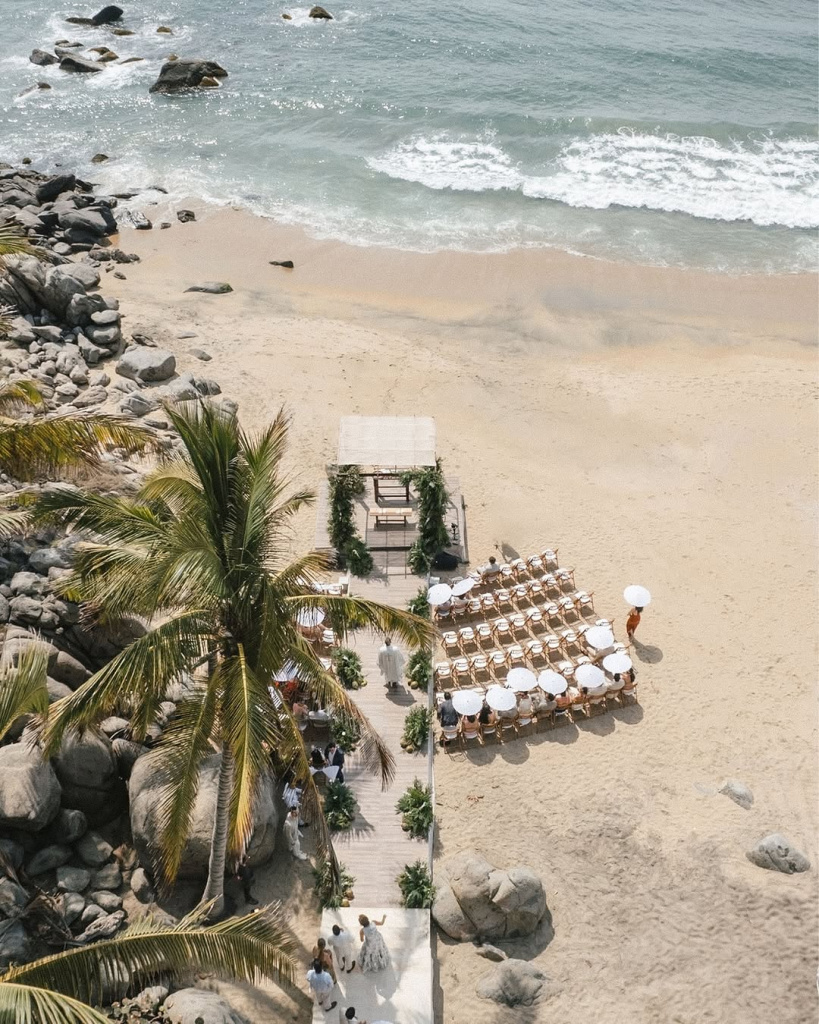
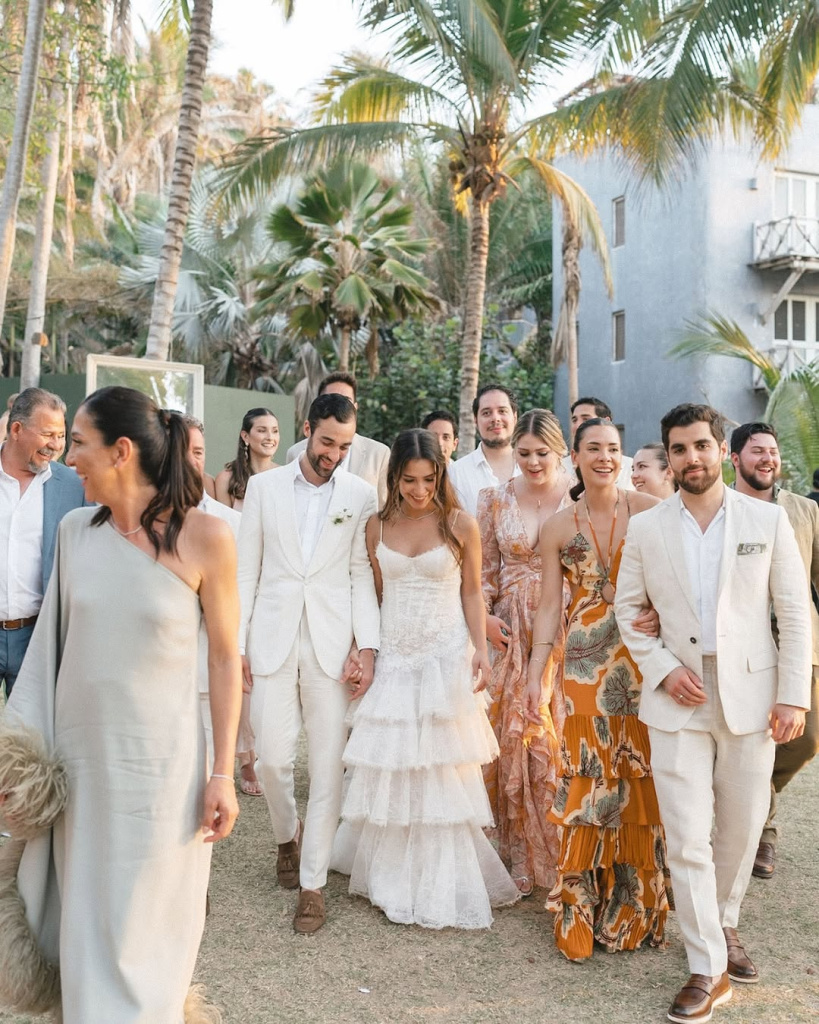
Mexican Destination Wedding Planning Tips: Music and Entertainment Options
Music and entertainment are pivotal in setting the mood and creating memorable moments at your wedding. In Mexico, where music and dance are integral parts of the culture, the options are vibrant and diverse. Here's how to plan the music and entertainment for your Mexican destination wedding to ensure it reflects both your tastes and the rich cultural backdrop.
Understanding Your Options
Mexico offers a variety of traditional and modern entertainment options for weddings:
- Mariachi Bands: Perhaps the most iconic of Mexican musical traditions, a mariachi band can provide a lively and festive atmosphere. Perfect for the ceremony entrance or cocktail hour.
- Trio or Quartet Bands: For a more intimate setting, consider hiring a trio or quartet that specializes in romantic Latin ballads, which can provide a lovely backdrop during dinner.
- Salsa or Merengue Bands: If you want your reception to have a dance-heavy atmosphere, a band that plays salsa, merengue, or other Latin dance music can energize your guests.
- DJ with a Local Flavor: A DJ can offer a mix of international hits and local favorites, catering to all tastes while keeping the dance floor busy.
- Folkloric Dance Performances: Adding a performance by a local dance troupe can entertain guests and introduce them to Mexican culture through colorful costumes and traditional dances.
- Firework Displays: If your venue allows, a firework display can be a spectacular way to cap off your wedding celebration.
Selecting the Right Entertainment
Choosing the right type of entertainment involves considering several factors:
- Guest Demographics: Consider the age range and cultural backgrounds of your guests. A mix of music styles may be necessary to ensure everyone enjoys the festivities.
- Venue Restrictions: Check with your venue about any noise restrictions or limitations on live performances and fireworks. Some locations may also have specific end times for music.
- Performance Space: Ensure the venue has adequate space and the necessary facilities for the entertainment you choose, whether it’s a stage for a band or a dance floor for guests.
- Duration of Entertainment: Plan how long each music or entertainment segment will last. Typically, live bands play in sets with breaks in between, while a DJ might cover the entire reception.
Always have a backup plan for outdoor entertainment in case of bad weather. Clear communication about plan B with your venue and vendors will ensure a smooth transition if changes are necessary.
Destination Wedding Essentials: Crafting an Authentic Mexican Wedding Menu
Creating an authentic Mexican wedding menu adds a flavorful and memorable dimension to your celebration, allowing guests to immerse themselves in the local culture.
Understanding Mexican Cuisine
Mexican cuisine is known for its diversity and depth of flavors, incorporating fresh local ingredients, traditional spices, and cooking methods. It ranges from seafood dishes along the coast to hearty meat dishes in the north and spice-laden delights in the south. Consider incorporating a variety of these elements:
- Regional Dishes: Each region of Mexico offers unique dishes. For example, Yucatán's cuisine includes cochinita pibil (slow-roasted pork), while Oaxaca is famous for its seven types of mole sauces.
- Street Food Inspirations: Items like tacos, tamales, and quesadillas can be elevated into gourmet offerings that reflect authentic flavors.
- Seafood Options: For coastal venues, include local seafood dishes like ceviche, aguachile (spicy shrimp ceviche), and fish tacos.
Collaborating with Your Caterer
- Choose Experienced Caterers: Work with caterers who specialize in Mexican cuisine or have a deep understanding of it. They can provide insights into seasonal ingredients and regional specialties.
- Menu Tasting: Schedule a tasting session to try different dishes and select the ones that best fit your taste and wedding theme. This is also a good opportunity to discuss presentation and portion sizes.
- Dietary Considerations: Ensure your menu has options for guests with dietary restrictions, such as vegetarian, vegan, and gluten-free choices. Mexican cuisine naturally includes many dishes that can be easily adapted to these needs.
Structuring the Menu
- Welcome Drinks: Start with a welcome drink like a margarita, paloma (tequila with grapefruit soda), or a non-alcoholic agua fresca.
- Appetizers: Offer a variety of small plates or a tasting platter. Include items like mini quesadillas, sopes (corn cakes topped with meats and vegetables), and ceviche.
- Main Courses: Provide a balanced selection of meat, seafood, and vegetarian options. Dishes could include chiles en nogada (stuffed poblano peppers), grilled seafood with a lime and chili marinade, and enchiladas with a choice of fillings.
- Sides: Accompany mains with sides such as Mexican rice, refried beans, and a salad made from local ingredients.
- Desserts: Mexican desserts like flan, tres leches cake, and churros with chocolate dipping sauce are crowd-pleasers.
- Late-Night Snacks: Consider a taco stand or a make-your-own nachos bar for late-night snacking.
Presentation and Experience
- Themed Stations: Create themed stations, such as a taco bar, a mole tasting station, or a tequila tasting area with a variety of local offerings.
- Interactive Elements: Include interactive elements like a live guacamole station or a chef preparing fresh chiles rellenos.
- Table Settings: Enhance the dining experience with vibrant table settings that feature Mexican textiles and handcrafted pottery as part of the decor.
Go over the final menu, presentation specifics, and the timing of the meal service with your caterer to ensure everything runs smoothly on the day.
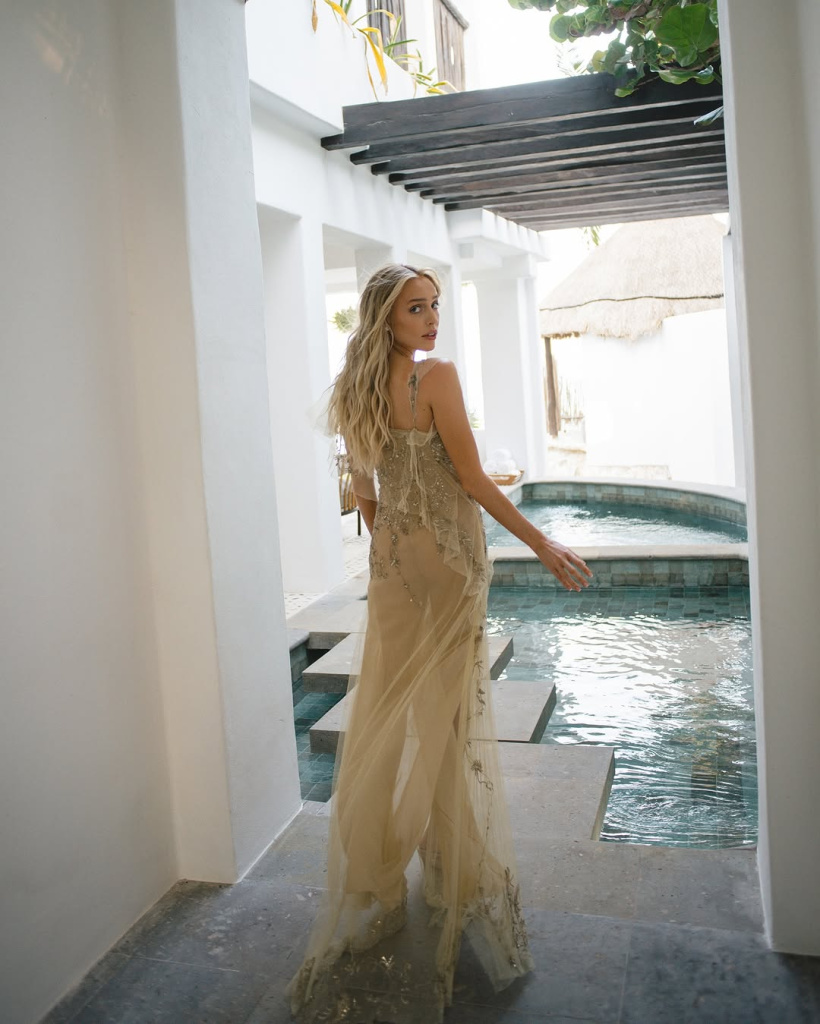
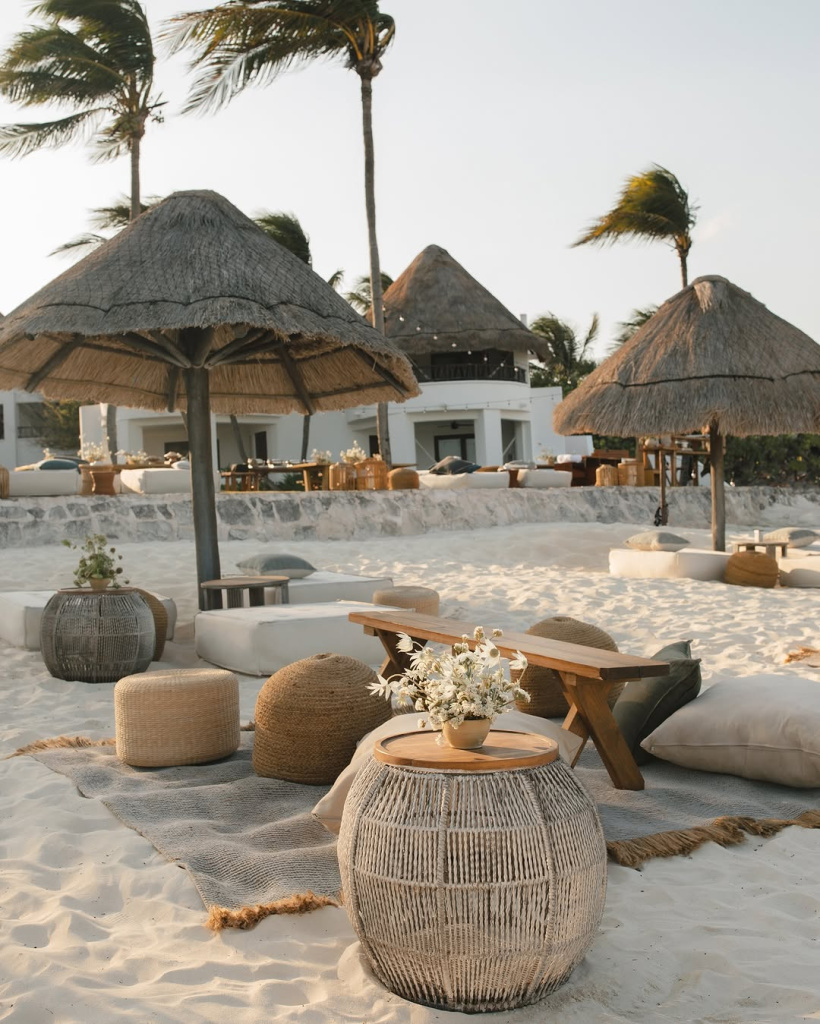
Ensuring Seamless Communication with Vendors
Effective communication is key to ensuring that all aspects of your destination wedding in Mexico are executed according to plan. As part of the ultimate guide to planning a destination wedding in Mexico, here’s how to manage and streamline communications with your vendors to avoid any mishaps:
- Establish Clear Communication Channels: Define the best methods of communication, whether it's email, phone calls, or a dedicated wedding planning app. Use these consistently to ensure messages are not missed.
- Language Considerations: If there is a language barrier, consider hiring a bilingual coordinator or using translation services to ensure that your requirements are clearly understood and executed.
- Regular Check-Ins: Schedule regular check-ins with each vendor to go over details and progress. This keeps everyone on track and allows you to address any issues promptly.
- Detailed Contracts: Ensure that all agreements with vendors are detailed in contracts. This should include delivery dates, times, costs, and specific requirements. Contracts help clarify expectations and provide a legal safety net for both parties.
- Centralized Documentation: Keep all communications and documents in one central place that is accessible to you and your wedding planner. This could be a digital folder with sections for each vendor, including contracts, correspondence, and notes.
- Backup Plans: Discuss and document backup plans with vendors for critical elements like catering or photography. Knowing the contingency plans in advance can reduce stress in case of unforeseen circumstances.
- Local Help: Utilize local resources such as your wedding planner or hotel staff who are familiar with the area and can help communicate your needs to local vendors more effectively.
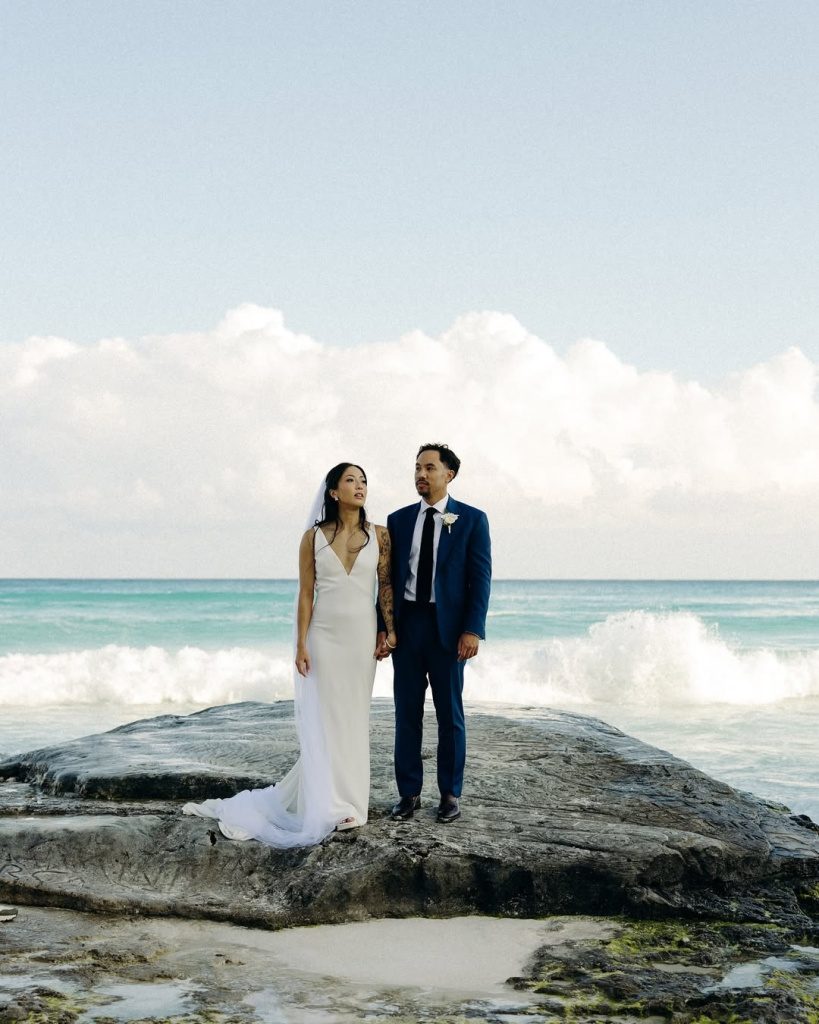
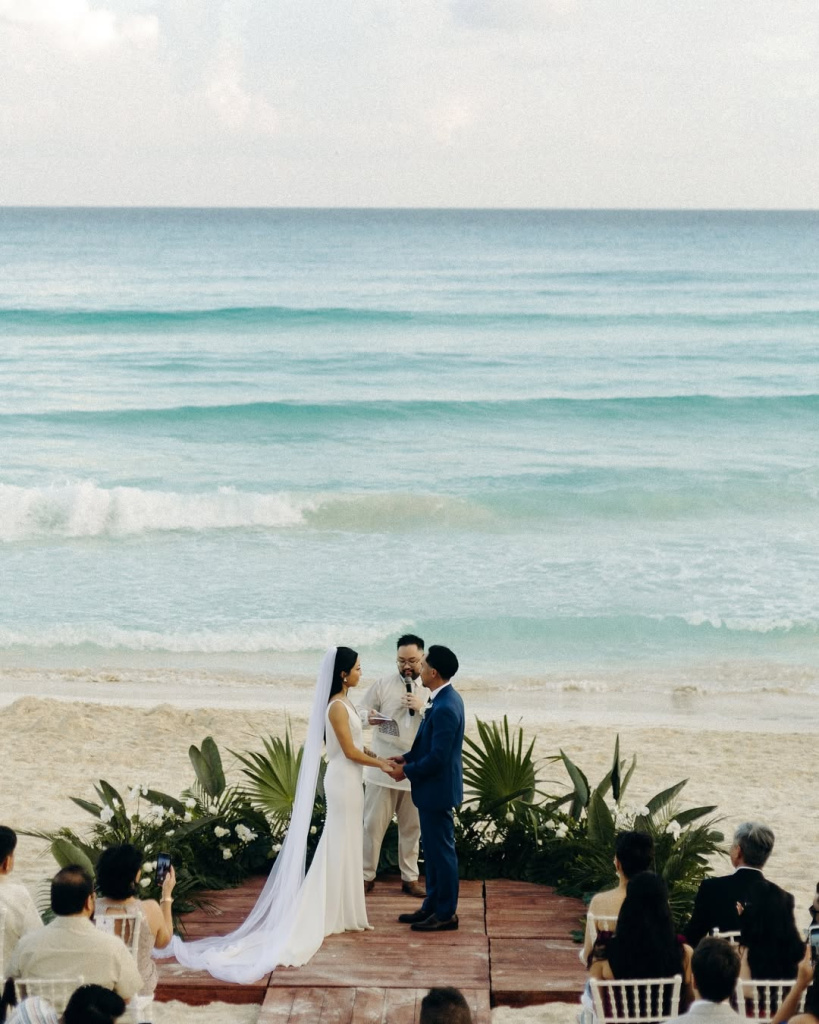
Personalized Wedding Décor and Themes
Creating a personalized wedding theme that reflects your tastes while blending with the Mexican setting can make your wedding truly memorable. Here are some essential tips for planning your dream destination wedding, focusing on ideas to inspire your wedding décor and themes:
- Cultural Fusion: Blend elements from your own culture with traditional Mexican styles. For example, use your traditional wedding colors with Mexican patterns in table settings or floral arrangements.
- Local Artistry: Incorporate local crafts into your décor, such as hand-painted tiles as place cards or centerpieces featuring Mexican pottery.
- Natural Elements: Use locally sourced flowers and materials to decorate. For example, create centerpieces with native flowers and succulents that reflect the natural beauty of the region.
- Theme Consistency: Carry your theme throughout all elements of the wedding, from the invitations to the table settings, to the guest favors, ensuring a cohesive look and feel.
- Lighting: Use lighting to enhance the mood. String lights, lanterns, or candles can add a romantic and warm glow to your evening celebrations.
- Personal Touches: Include elements that are meaningful to your relationship, such as quotes from your favorite poems or books in your decor, or photos of your journey together as part of the table centerpieces.
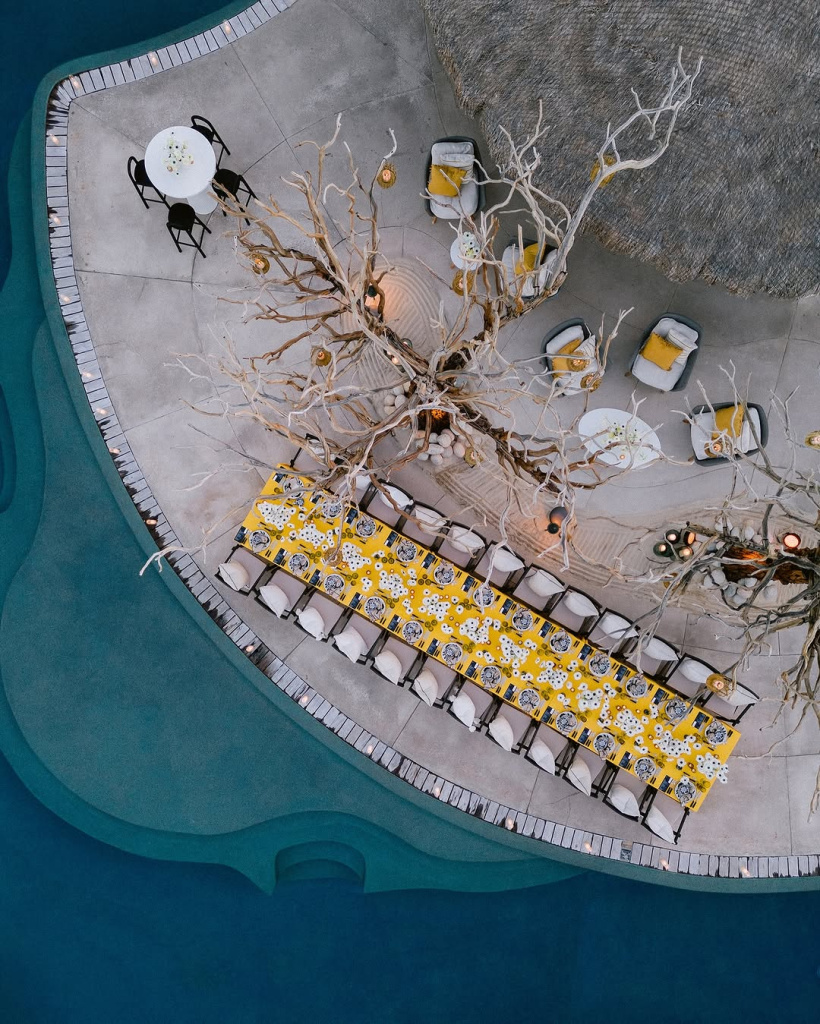
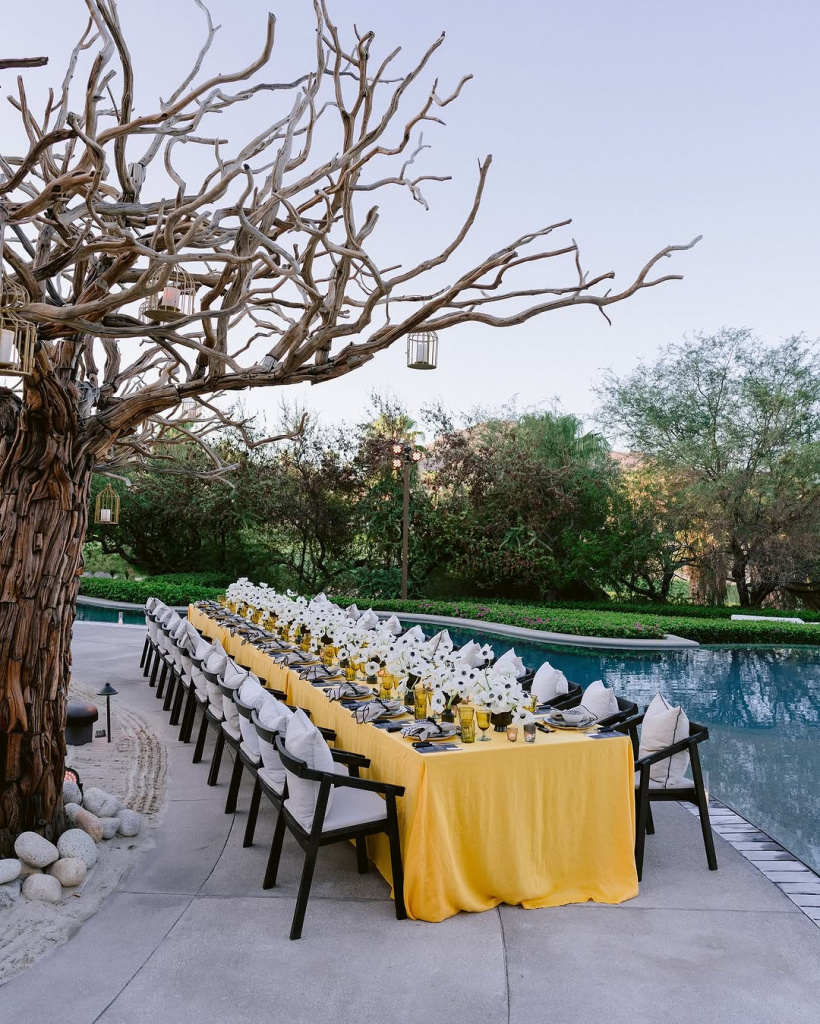
Sustainable and Eco-Friendly Wedding Ideas
Planning a sustainable wedding in Mexico not only helps reduce your environmental impact but also adds a thoughtful element to your celebration. Here's how to plan a destination wedding in Mexico with a focus on sustainability; check out these eco-friendly ideas:
- Local and Seasonal Food: Choose a menu with local and seasonal ingredients, that reduce transportation emissions and support local agriculture.
- Eco-Friendly Invitations: Opt for digital invitations or use recycled paper for physical ones. Consider plantable paper, which contains seeds that guests can later grow into plants.
- Decor: Use natural, biodegradable, or reusable decor items. For instance, use real plants and flowers that guests can take home and plant or donate to local hospitals or charities after the event.
- Sustainable Venues: Choose venues that are known for their sustainable practices, such as solar-powered hotels or venues that offer recycling programs.
- Minimal Waste: Plan for minimal waste by avoiding single-use plastics and ensuring that recycling bins are available throughout the venue.
- Charitable Donations: Instead of traditional wedding favors, consider making a donation to a local environmental charity and informing your guests of the contribution.
- Carbon Offsetting: Offer to offset the carbon footprint of traveling guests by investing in carbon credits or planning a tree-planting event during the wedding festivities.
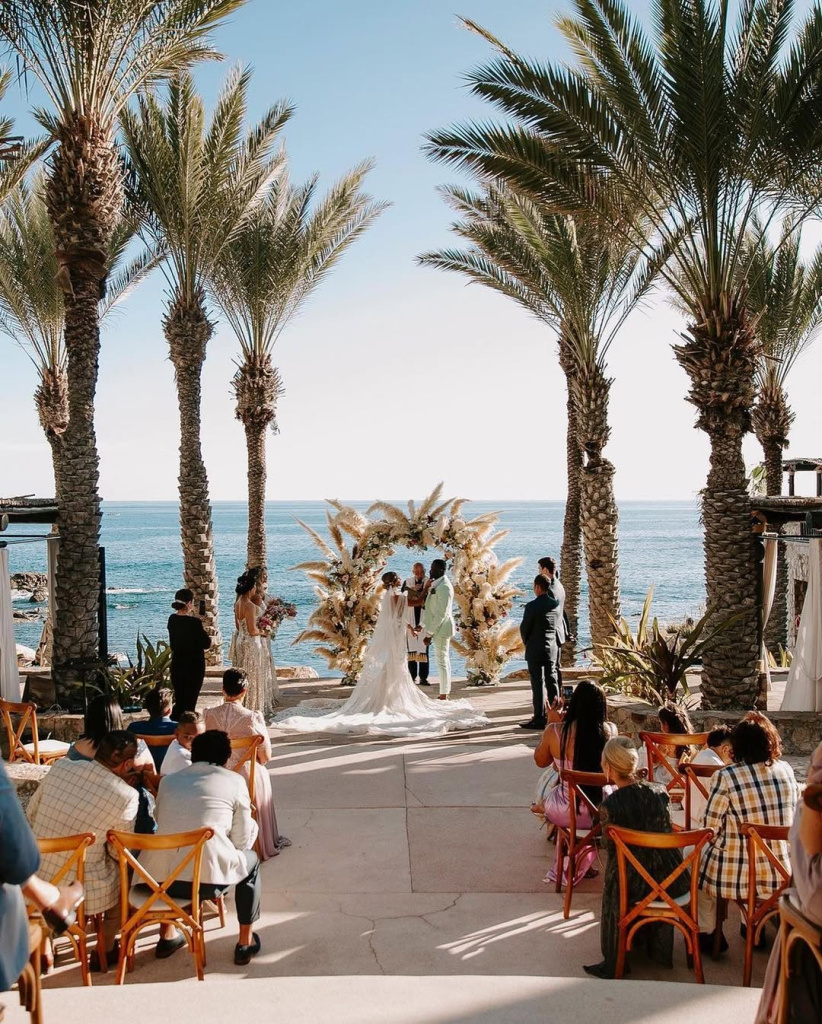
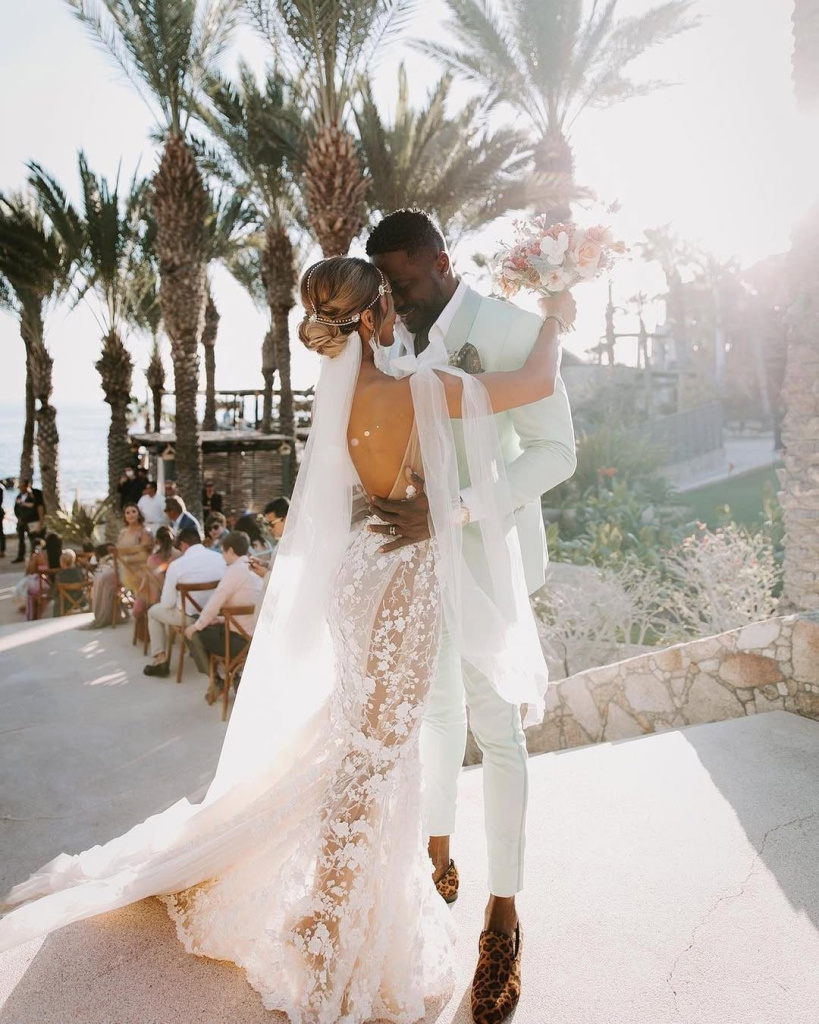
Exploring Mexican Wedding Dress Trends
Mexican wedding dress trends beautifully blend traditional elements with modern influences, creating unique and stunning styles that cater to a variety of tastes.
Embracing Color
While white remains a popular choice, more brides are embracing color in their wedding dresses. This includes soft pastels like blush and sky blue as well as vibrant colors such as deep reds and even black. Incorporating traditional Mexican colors can add a personal and culturally rich touch to the ceremony.
Lace and Embroidery
Intricate lacework and detailed embroidery are staples in Mexican wedding dress designs. These elements are often inspired by traditional Mexican crafts and textiles, featuring floral patterns and indigenous motifs. Modern dresses might use these designs more subtly as accents on sleeves, necklines, or the train, while traditional dresses might feature all-over embroidery.
Two-Piece Dresses
Two-piece wedding dresses are gaining popularity for their versatility and modern appeal. They can be particularly appealing for destination weddings in Mexico, given the warm climate. Brides can opt for a cropped top and a high-waisted skirt, which can be both stylish and comfortable.
Ruffles and Volume
Inspired by the traditional Mexican folkloric dance dresses, many contemporary wedding gowns incorporate ruffles and voluminous layers. This trend adds dramatic flair and movement to the gown, making it stand out, especially in dance-filled receptions.
Off-the-Shoulder Designs
Off-the-shoulder dresses are a nod to traditional Mexican attire and continue to be popular among brides. This style suits the warm Mexican climate and complements a variety of wedding settings, from beachfront ceremonies to more formal indoor events.
Transformative Pieces
Dresses that transform, such as those with detachable skirts or sleeves, offer brides flexibility and variety, which is particularly useful for destination weddings. A bride might choose a fuller dress for the ceremony and then transform it into a sleeker version for the reception.
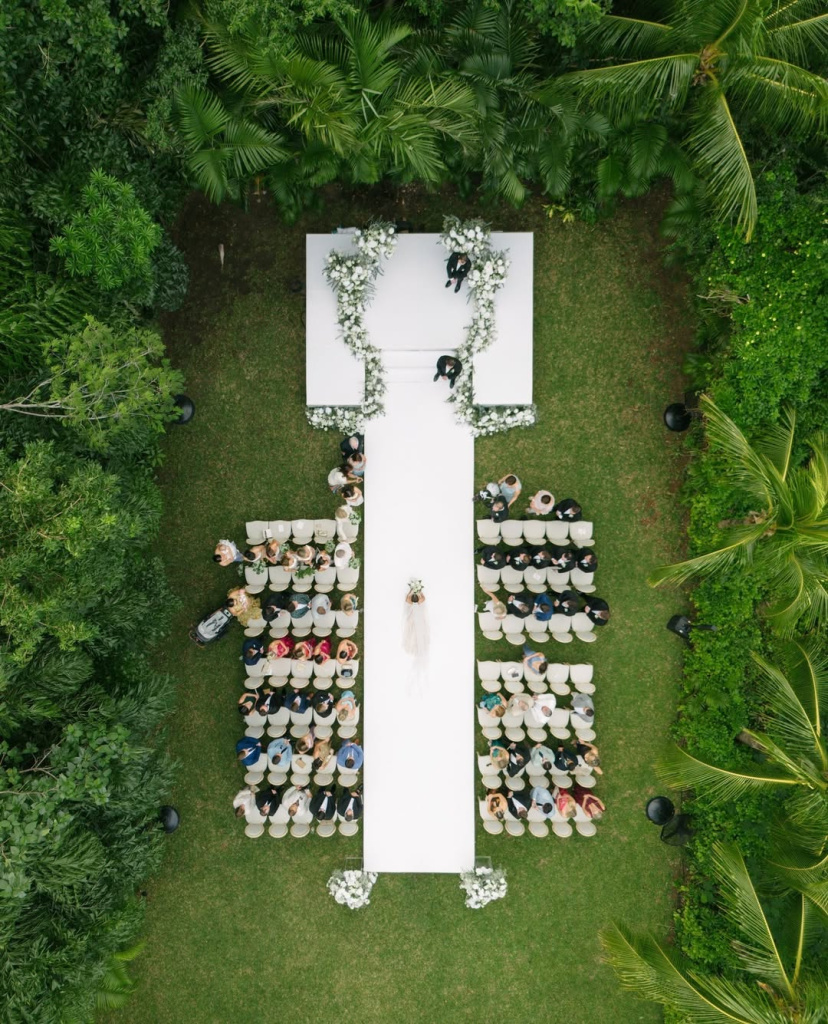
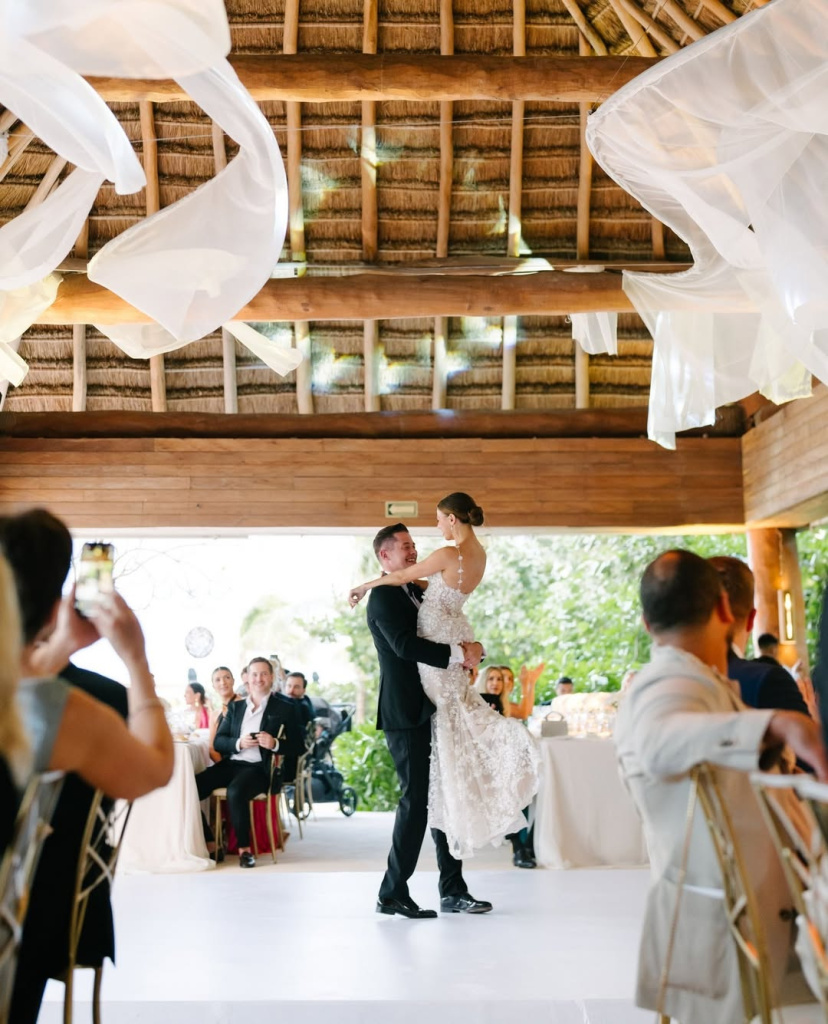
Incorporating Mexican Traditions and Customs
A destination wedding in Mexico provides a unique opportunity to blend Mexican cultural traditions and customs into your celebration. This not only enriches the experience but also honors the local heritage. Here's your ultimate guide to planning your dream wedding in Mexico, focusing on integrating these meaningful cultural elements.
Las Arras (Wedding Coins)
This tradition involves the groom giving the bride thirteen gold coins, symbolizing his commitment to support her. The coins are blessed by the priest and represent Christ and his apostles, reflecting the couple's trust and fidelity.
El Lazo (Wedding Lasso)
During the ceremony, a rosary or silk cord is draped in a figure-eight shape around the couple's necks by their padrinos (godparents) after they have exchanged their vows. This symbolizes their union and the infinity of their marriage.
Padrinos and Madrinas
These are chosen sponsors who play a significant role in the wedding, often contributing to the cost of the wedding and participating in the ceremony. Each padrino may sponsor a particular aspect of the wedding, such as the rings, the lasso, or the arras.
Mariachi Music
Hiring a mariachi band to play during the reception is a lively and festive way to incorporate traditional Mexican music. They can play as guests arrive, during dinner, or to kick off the dancing.
La Vibora de La Mar (The Sea Snake Dance)
This is a fun and energetic dance where guests hold hands and weave around the tables and chairs, led by the bride and groom.
El Baile del Billete (Money Dance)
In this tradition, guests pin money onto the bride's dress or groom's suit as they dance with them. This is a way to help the couple financially as they start their new life together.
Tequila or Mezcal Tasting
Offer a tasting station with a selection of fine tequilas or mezcals, complete with salt and lime, for guests to enjoy.
Papel Picado (Perforated Paper)
Use these beautifully crafted paper banners to decorate your venue. They are often used in Mexico for significant events and carry meanings through their colors and patterns.
Charro Outfits
For a touch of Mexican tradition, the groom and his groomsmen can wear charro suits, which are elegant and ornately embroidered.
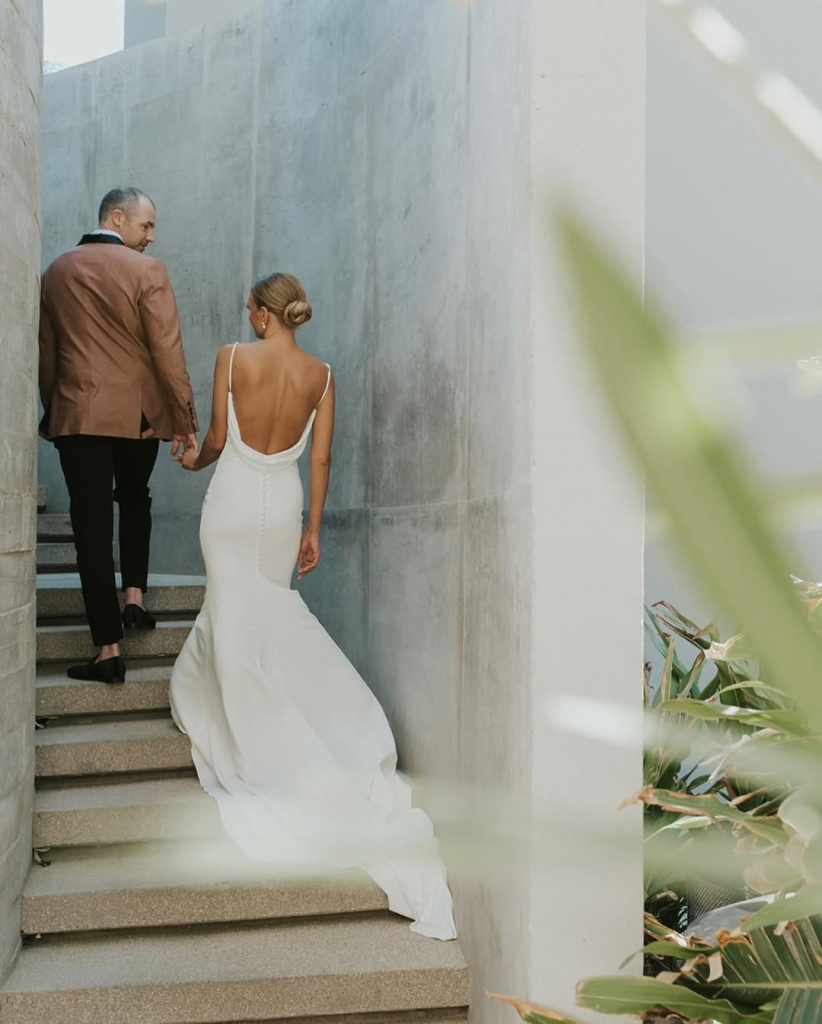
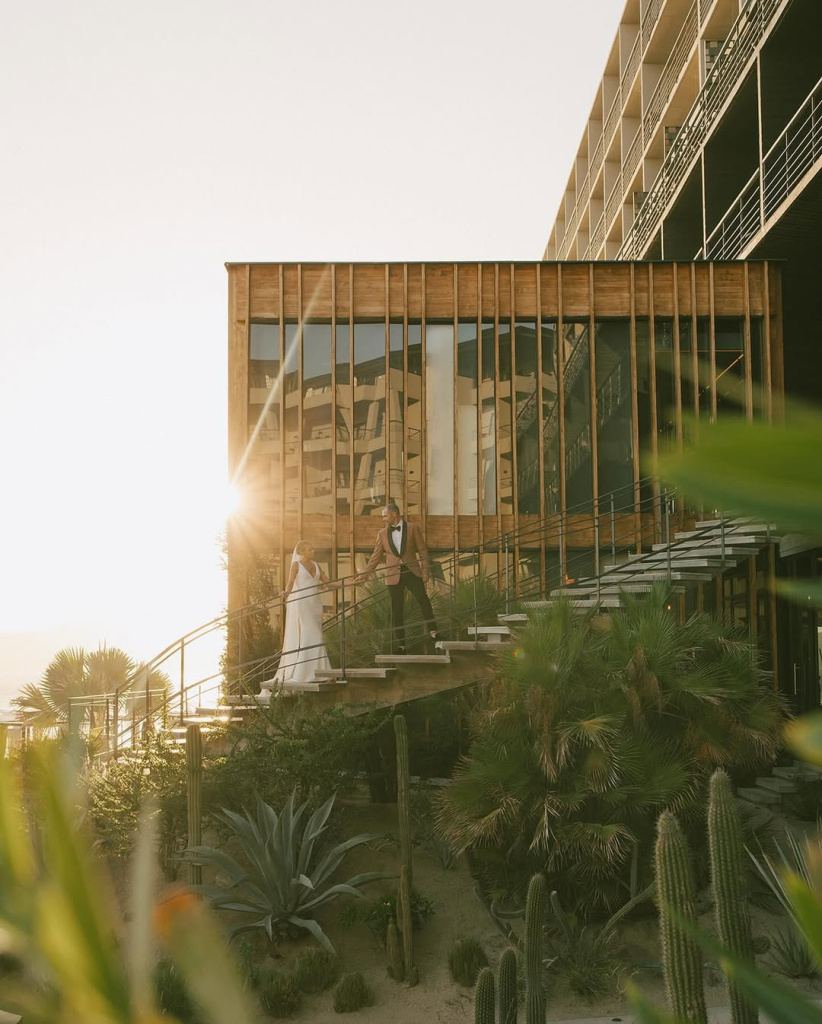
The Essential Guide to Planning Your Dream Destination Wedding in Mexico: Cultural Etiquette and Expectations
Understanding and respecting the cultural norms and etiquette of Mexico can greatly enhance the experience of your destination wedding. Here’s a guide to help you navigate these cultural nuances.
Formality and Respect
Mexican culture places a high value on respect and formality in social settings. When addressing people, use formal titles such as "Señor" or "Señora" until invited to do otherwise. This is particularly important when communicating with older individuals or vendors.
Dress Code
For weddings, Mexicans often dress very formally. It's customary for men to wear suits or traditional "charro" outfits, and women to wear long dresses or formal cocktail attire, depending on the time of day and setting.
Punctuality
While traditionally Mexican events may run on 'Mexican time' (where events start later than scheduled), it’s important for the couple and their immediate family to be punctual, especially for the ceremony.
Religious Elements
Many Mexicans are Roman Catholic, and religious traditions often play a significant part in wedding ceremonies. If you choose to incorporate these elements, such as the "lazo" or "arras," do so with respect and understanding of their significance.
Social Interactions
Physical touch and close personal space are norms in Mexican social interactions. Be prepared for hugs and cheek kisses as common greetings.
Gift-Giving and Reciprocity
Gifts are a cherished part of Mexican wedding traditions, often symbolizing more than just well-wishes. If you receive a gift, especially from someone older, accept it graciously and ensure to give a heartfelt thank you.
Festivities Duration
Mexican weddings often last until early morning. The reception typically includes dinner, dancing, and multiple toasts, and it’s common for festivities to extend well beyond midnight.
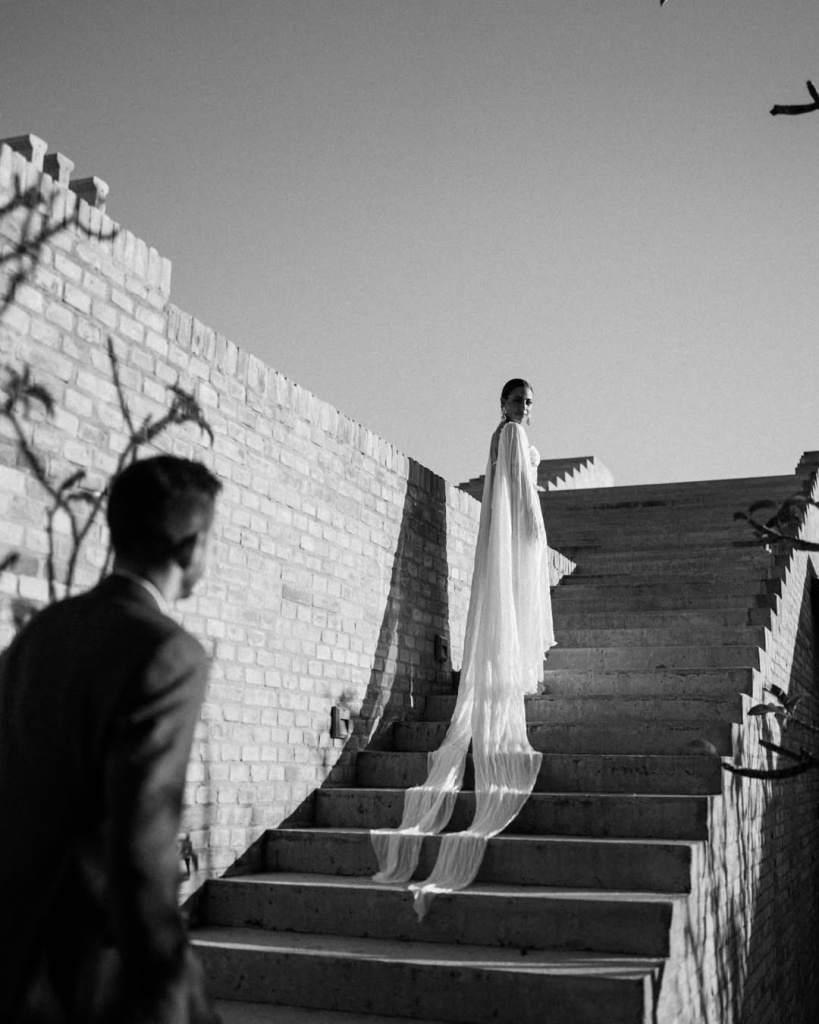
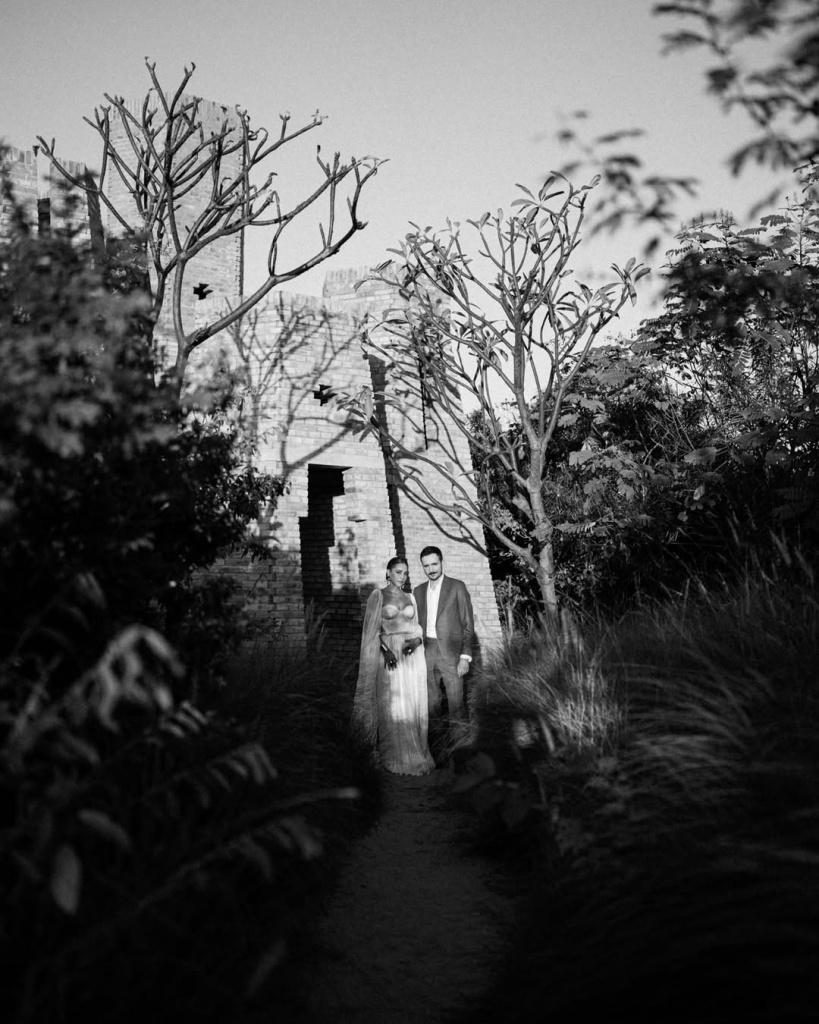
Steps to Planning a Destination Wedding in Mexico: Understanding the Seasonal Weather
The country's diverse climate zones mean that weather conditions can vary dramatically depending on where and when you plan to get married. From the sunny beaches to the high-altitude cities, understanding Mexico's seasonal weather patterns is essential for scheduling your wedding date and ensuring a comfortable experience for all involved.
Seasonal Variations
Mexico generally has two main seasons - the dry season (November to April) and the rainy season (May to October). The dry season is typically preferred for weddings, offering sunny days and minimal rain.
Regional Differences
Coastal areas like Cancun and Puerto Vallarta tend to have a tropical climate with higher humidity and occasional storms, especially during the rainy season. Inland cities like Mexico City experience a more temperate climate with cooler evenings.
Optimal Timing
If you’re planning a beach wedding, consider months like December to March when the weather is warm but not oppressively hot. For inland locations, April and May offer beautiful spring-like weather that is not too cold or too rainy.
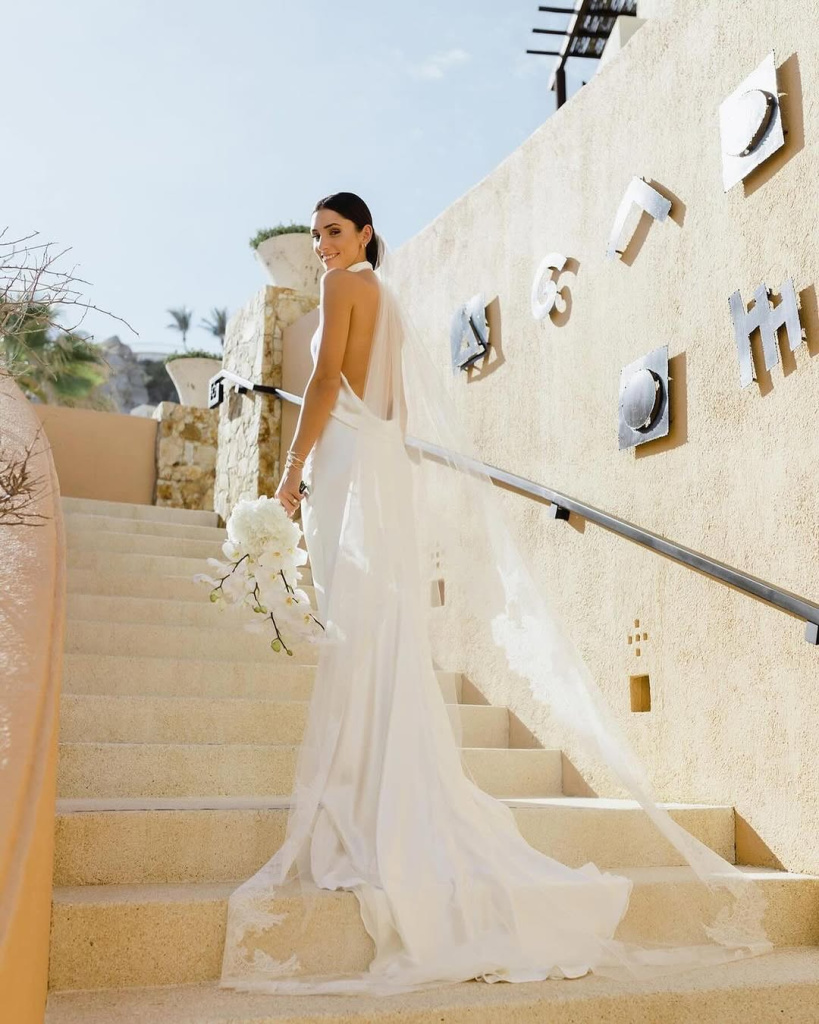
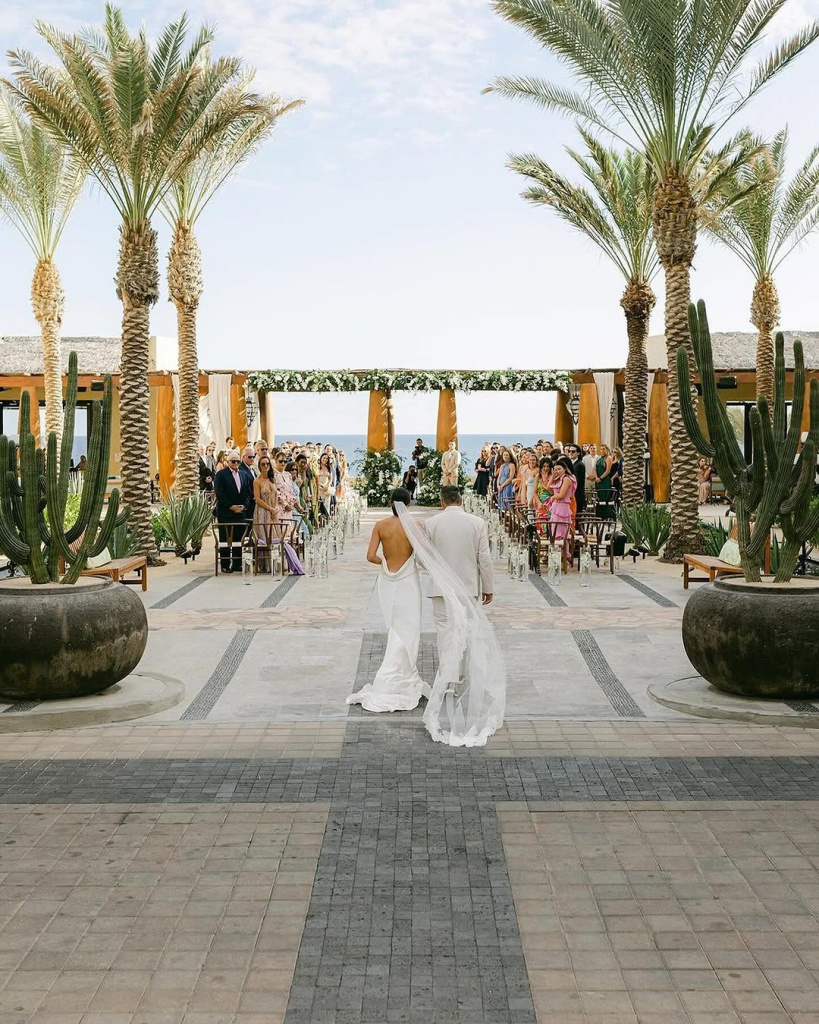
Accommodation Options for You and Your Guests
Choosing the right accommodations for you and your guests is a critical aspect of planning a destination wedding in Mexico. It’s essential to consider comfort, convenience, and the overall experience when selecting where everyone will stay. This step is a key part of your destination wedding planning guide, ensuring that your celebrations are as enjoyable and memorable as possible.
Resort Hotels
Many couples choose all-inclusive resorts that offer convenience and luxury. These often provide guest discounts for wedding groups and may include other amenities like spas, excursions, and dining options.
Boutique Hotels: For a more personalized experience, consider boutique hotels, which often reflect local charm and history, especially in cities like San Miguel de Allende or Oaxaca.
Rental Properties: Renting villas or large properties through platforms like Airbnb can be ideal for families or groups wanting to stay together. This option often provides more space and privacy.
Group Rates and Blocks: Secure a block of rooms at a hotel to ensure availability and possibly negotiate a better rate. Provide information about the accommodation options in your wedding invitations or on a wedding website.
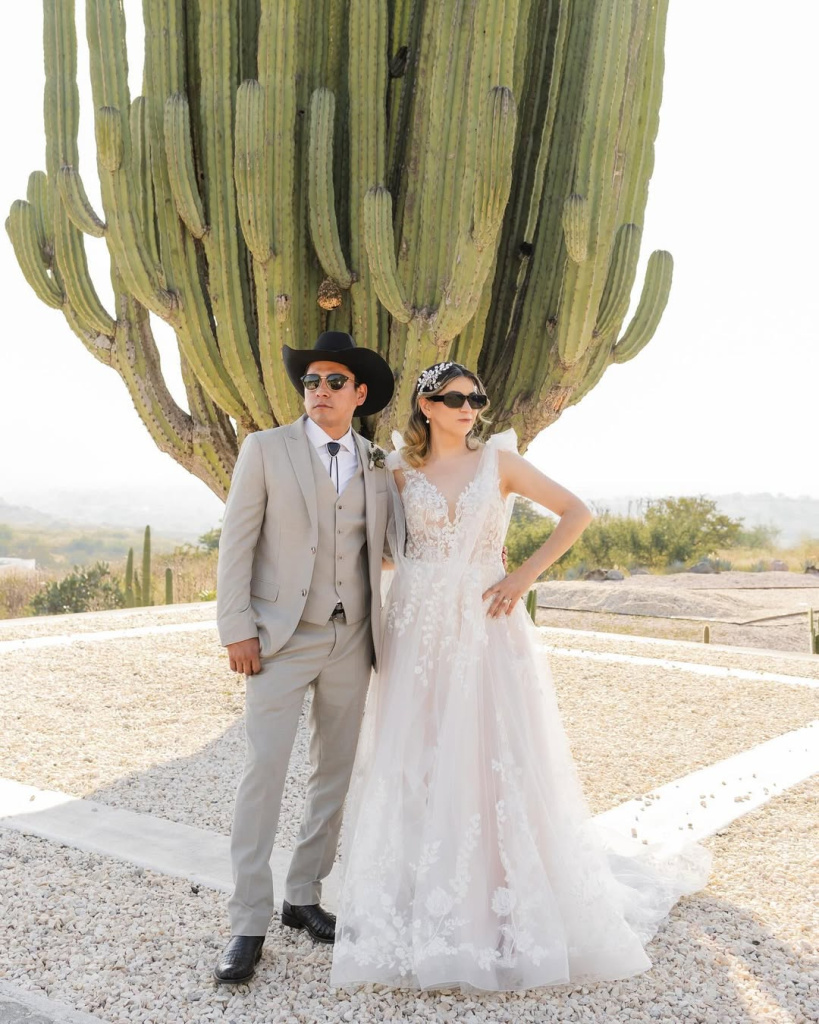
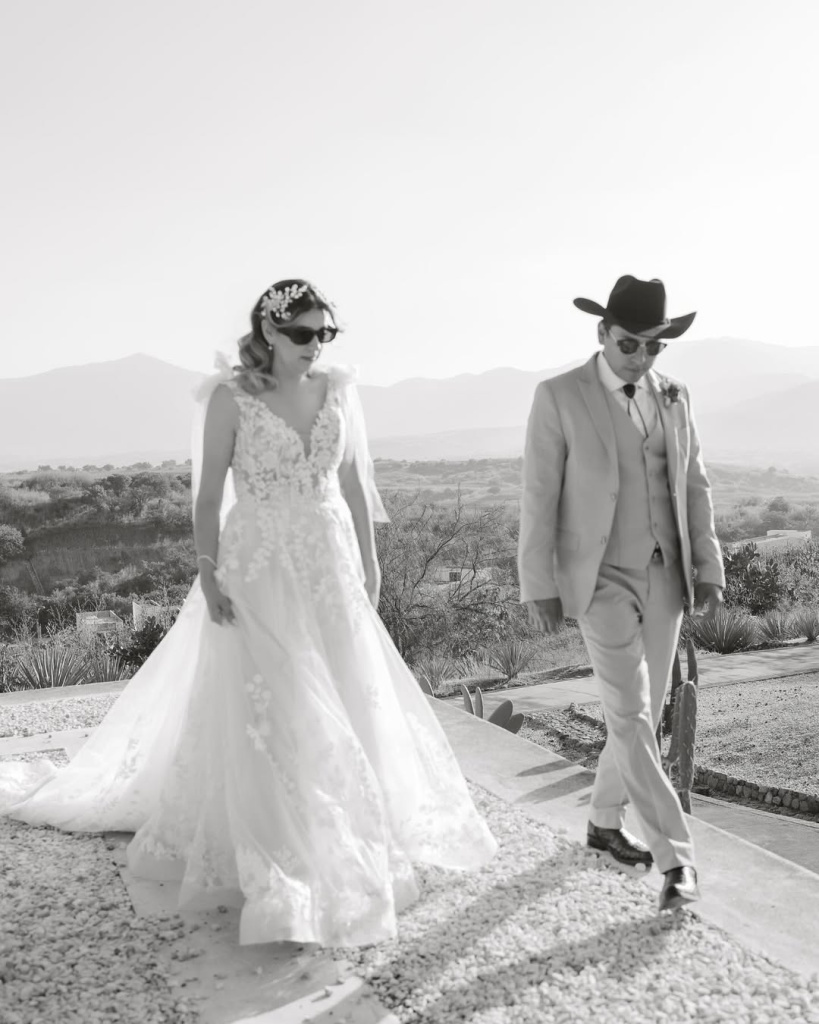
Transportation Logistics for Your Wedding Party
Organizing transportation for your wedding in Mexico is more than just a logistical necessity—it's a key to ensuring that your celebration goes smoothly and that every guest feels taken care of. From arranging airport pickups to ensuring guests can move easily between venues, every detail counts.
Airport Transfers
Arrange for transportation from the airport to the accommodations. Consider private buses or shuttles, especially if most guests arrive around the same time.
Venue Transportation
If your ceremony and reception are at different locations, or if there's a distance between accommodations and the venue, organize transport for guests. This ensures everyone arrives on time and no one has to navigate foreign roads.
Local Transportation Tips
Provide guests with information on local transportation options, including reputable taxi companies, rental car options, and any public transport available. For remote or unique venues, detailed directions or maps can be very helpful.
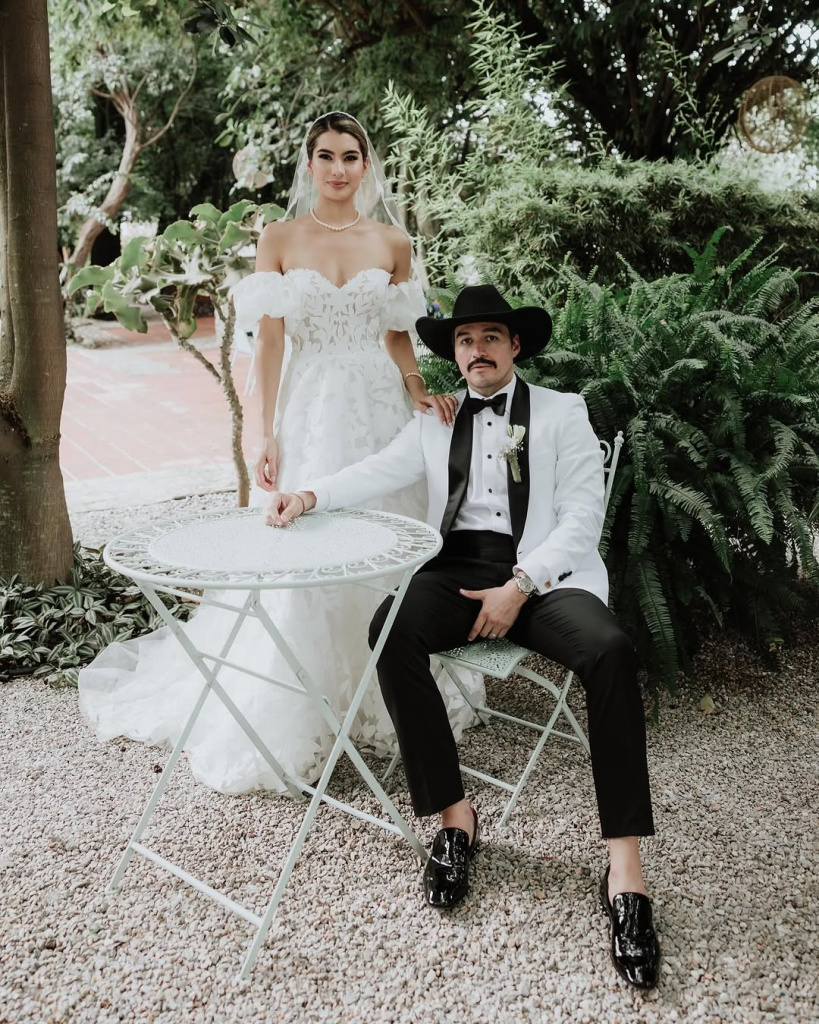
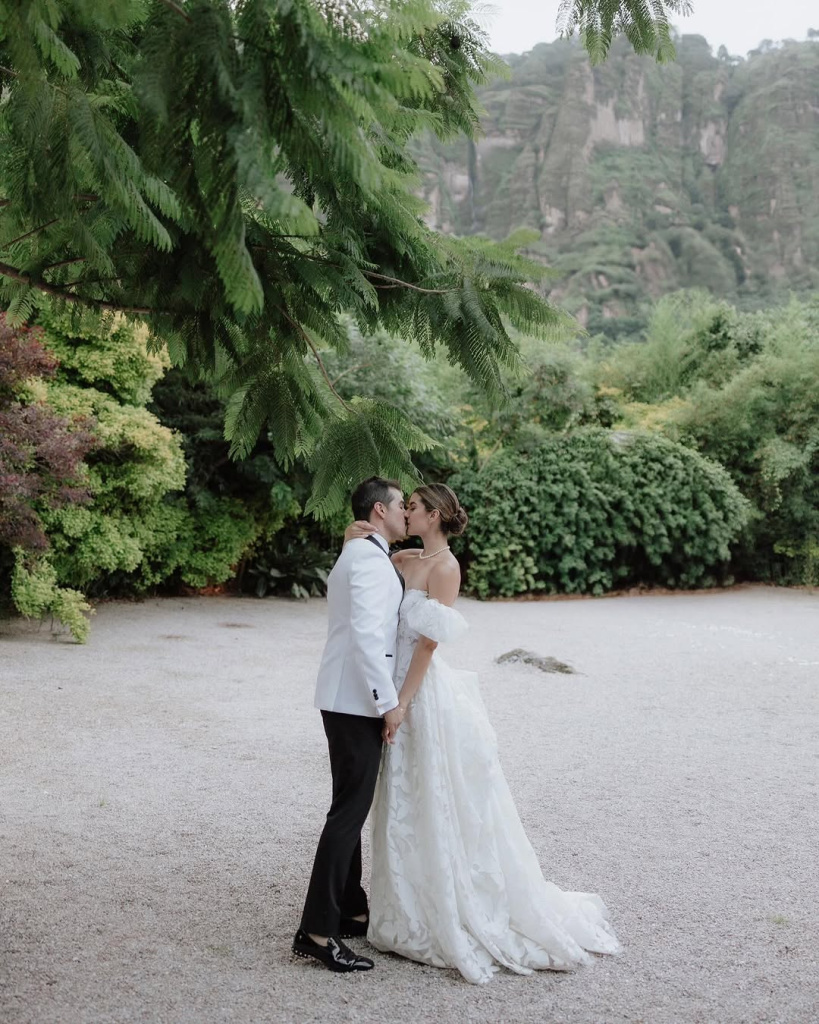
Creating Memorable Wedding Favors
Creating memorable wedding favors is a wonderful way to thank your guests for celebrating your special day with you, especially at a destination wedding in Mexico. This list of unique favor ideas is an essential part of our ultimate guide to plan a perfect wedding in Mexico, ensuring each guest leaves with a personalized touch that enhances your celebration and leaves a lasting impression:
- Customized Mini Tequila Bottles: Tequila is famously Mexican; personalized mini bottles can serve as both a favor and a toast to your happiness.
- Hand-painted Maracas: These colorful musical instruments not only reflect Mexican culture but also can be fun for your guests to shake during the reception.
- Mexican Spices or Salsa Mix: A small jar of local spices or a DIY salsa mix packet is a flavorful gift that guests can enjoy back home.
- Local Artisan Crafts: Small pottery, woven goods, or silver jewelry made by local artisans can be wonderful keepsakes that support the local economy.
- Personalized Hot Sauce Bottles: Another spicy take-home treat, these can be customized with your wedding date and names.
- Handmade Soaps or Candles: Infused with local scents like vanilla or coconut, these can bring a piece of Mexico to your guests’ homes.
- Traditional Mexican Sweets: Packaged sweets like tamarind candy or Mexican chocolate can satisfy the sweet tooth of your guests.
- Customized Beach Towels: If you’re having a beach wedding, a towel customized with your wedding details can be both practical and memorable.
- Reef-safe Sunscreen: Eco-friendly and useful for guests looking to enjoy the Mexican sun, reef-safe sunscreen is thoughtful and considerate.
- Seed Packets: Give guests seed packets to grow plants native to Mexico such as wildflowers or herbs, symbolizing growth and new beginnings.
- Coffee Beans: Mexico produces some excellent coffee, and a small bag of local beans can be a treat for coffee lovers.
- Personalized Flip-Flops: Comfortable footwear for a beach venue, these can be personalized and used during the wedding or at home.
- Customized Shot Glasses: Engraved with your wedding date and location, they're perfect for a celebratory shot and a keepsake.

Planning Pre-Wedding and Post-Wedding Activities
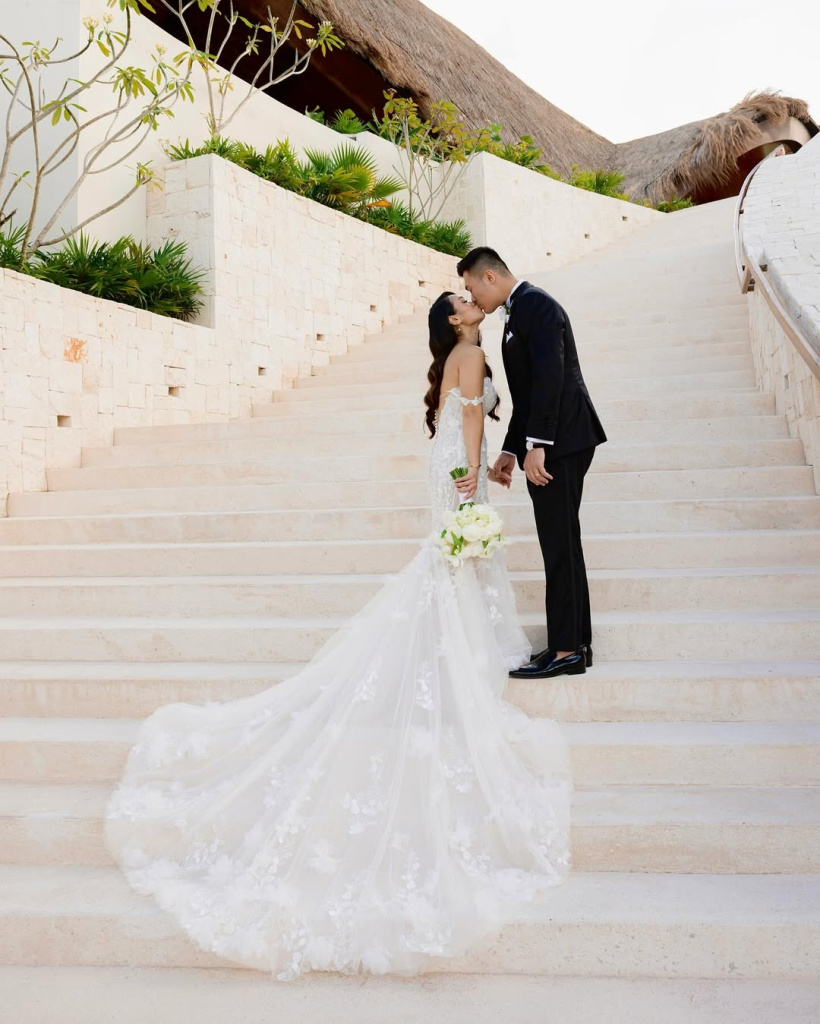
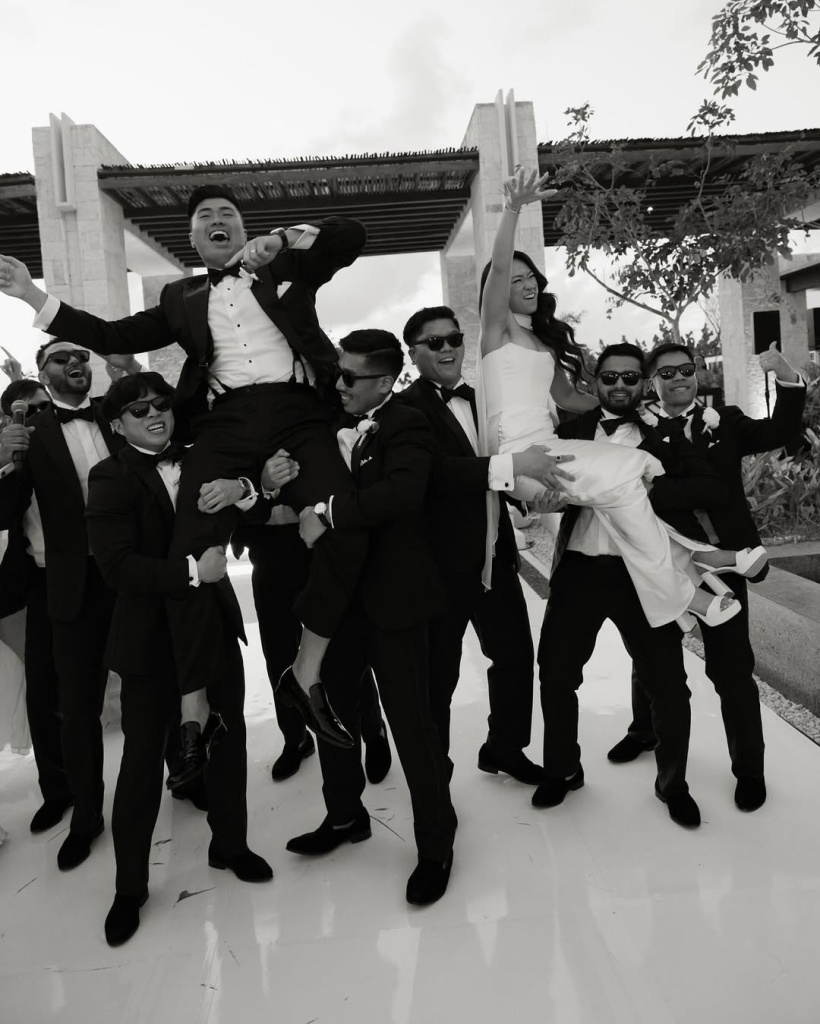
When planning a destination wedding in Mexico, incorporating pre-wedding and post-wedding activities can greatly enhance the overall experience for you and your guests. This part of our destination wedding guide provides practical advice on how to make the most of these opportunities, ensuring that every moment spent is memorable and enjoyable:
- Welcome Party: Host a welcome party for guests upon their arrival. This can be a casual beach gathering or a cocktail event at the hotel bar, providing a relaxed environment for guests to mingle and unwind.
- Group Excursions: Arrange group activities such as guided tours to local attractions, snorkeling trips, or a boat cruise. This is a great way for guests to experience the local culture and scenery together.
- Spa Day: Organize a day at a local spa for relaxation and rejuvenation before the big day. Many resorts offer group packages for wedding parties.
- Golf Outings: If you’re in an area with golf facilities, a group golf day can be a pleasant way to relax and enjoy some friendly competition.
- Cooking Classes: Offer a cooking class featuring local cuisine. It's a fun and interactive way for guests to engage with Mexican culture and cuisine.
- Farewell Brunch: After the wedding, a farewell brunch is a wonderful way to thank your guests before they depart. It provides one last opportunity for everyone to gather and reminisce about the wedding.
How to Plan a Dreamy Destination Wedding: Navigating Language Barriers
Language barriers can be a challenge when planning a destination wedding in a non-English speaking country like Mexico. Here are tips to help you navigate these barriers effectively:
- Hire Bilingual Vendors: Whenever possible, choose vendors who are fluent in both your language and Spanish. This can alleviate many communication issues.
- Use Translation Apps: Technology can be a great aid. Apps like Google Translate can help with quick translations of emails, menus, and signs.
- Professional Translator: For key discussions with vendors or during the ceremony, consider hiring a professional translator to ensure clear communication.
- Pre-Wedding Visit: If possible, visit the location ahead of time to meet with vendors personally. This can help establish a rapport and clarify details that may be lost in translation over email or phone.
- Detailed Contracts: Ensure all contracts are available in both English and Spanish. This helps both parties understand the commitments clearly.
Health and Safety Considerations
Ensuring the health and safety of your guests is paramount, especially in a foreign country. In this part of our ultimate guide to planning a wedding in Mexico we explore some important considerations to keep in mind:
- Travel Insurance: Encourage your guests to purchase travel insurance that covers medical emergencies and unexpected trip cancellations or interruptions.
- Local Healthcare Facilities: Research and provide information on the nearest hospitals and clinics. Include contact information and directions.
- Safe Transportation: Arrange safe and reliable transportation options for your guests, particularly for airport transfers and travel between venues.
- Food and Water Safety: Advise guests on local food and water safety. For example, it might be safer to drink bottled water, and some might need to avoid street food.
- Emergency Contacts: Provide guests with a list of emergency contacts, including local emergency services, the nearest embassy or consulate, and key contacts within the wedding party.
- Weather Considerations: Plan for the local weather conditions. Provide essentials like sunscreen and insect repellent and have contingencies for hot or rainy weather.
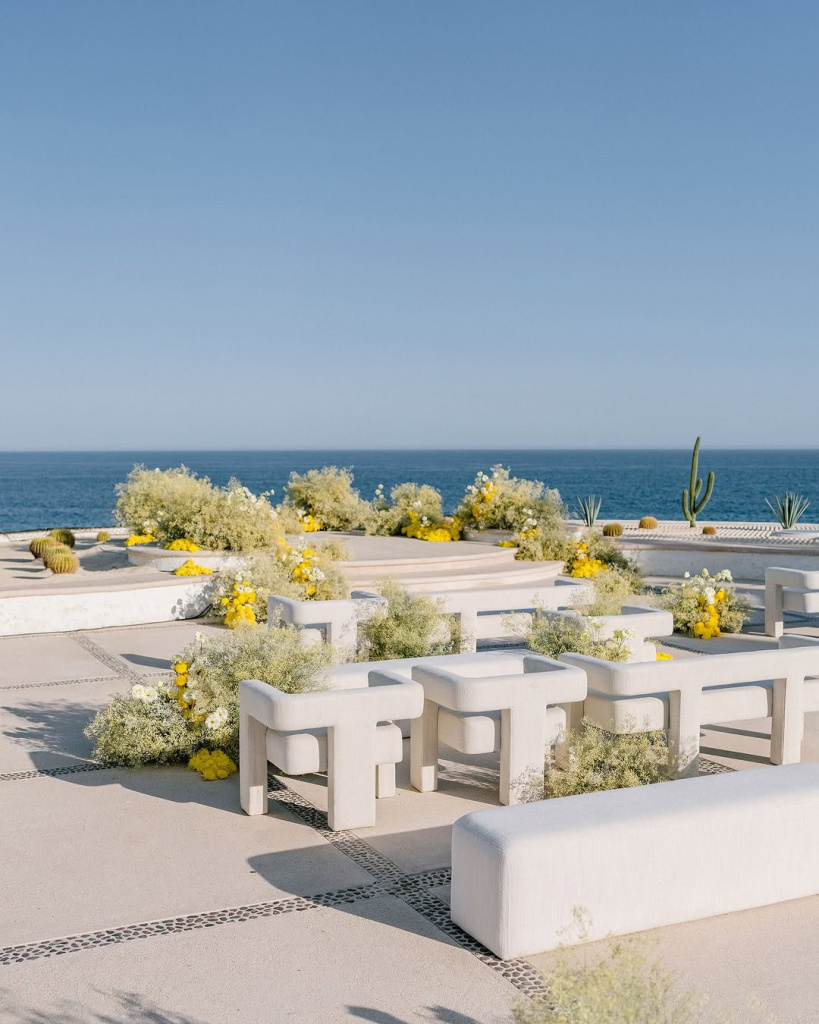
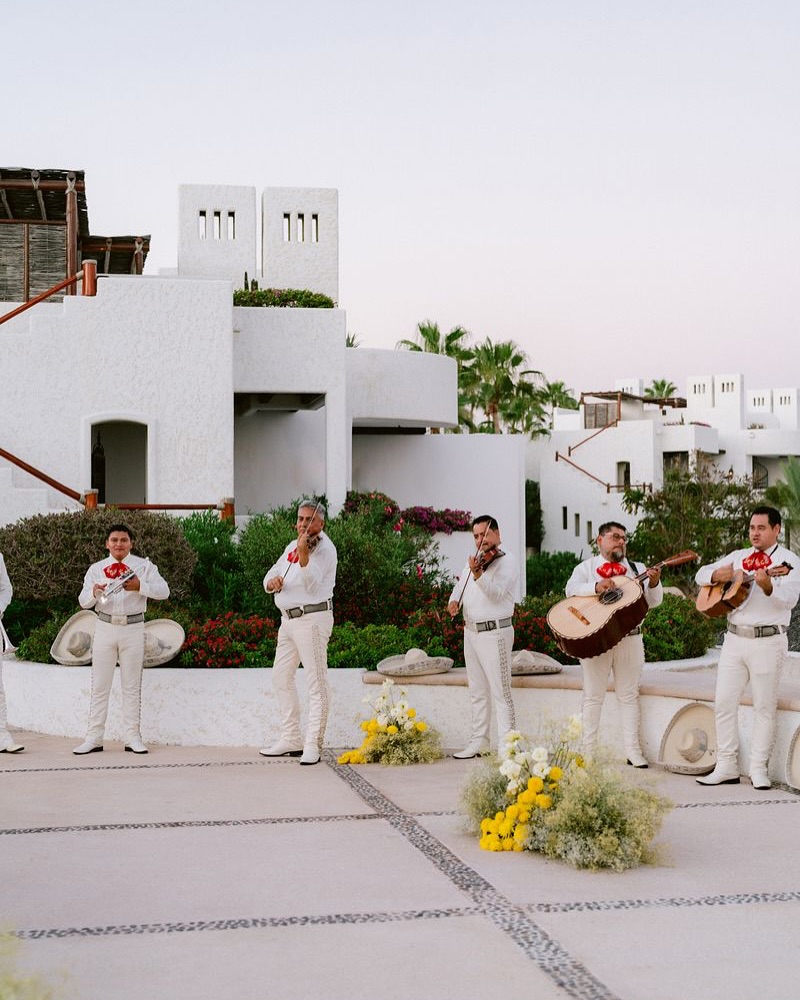
Packing Essentials for a Mexican Wedding
Packing appropriately is key to enjoying both the festivities and the locale comfortably. Here’s a list of packing essentials to consider for a Mexican wedding:
- Comfortable Shoes: Pack comfortable shoes for dancing and walking, especially if you'll be exploring local sights. Consider terrain-specific footwear if the wedding is on a beach or outdoor venue.
- Sun Protection: Include sunscreen, sunglasses, and a wide-brimmed hat to protect against the strong Mexican sun, especially if you’ll spend a lot of time outdoors.
- Light Layers: Evenings can cool down, especially by the beach or in higher elevations. Bring a light sweater or wrap.
- Swimwear: Don’t forget swimwear for enjoying the hotel pool or beach days.
- Personal Care Items: Pack all necessary toiletries and medications. Include items that might be difficult to find locally, such as specific brands of toiletries or prescription medications.
- Travel Documents: Ensure you have your passport, copies of your travel insurance, and any necessary visas. It’s also wise to have a list of emergency contacts and any important health information readily accessible.
- Camera or Smartphone: Bring a camera or ensure your smartphone has enough memory to capture memories without running out of space.
- Power Adapter and Chargers: Mexico uses the same plug type and voltage as the USA (110V), but bringing an adapter is wise if you're coming from other regions.
- Beach Bag: Include a beach bag for day trips to the seaside or poolside relaxing.
- Insect Repellent: Depending on the season and location of the wedding, insect repellent can be invaluable.
- Cash and Credit Cards: Have some local currency on hand for small purchases, tips, and emergencies, along with your credit cards.
- Appropriate Luggage: Choose luggage that’s easy to transport, especially if you'll be moving between multiple locations.
Making the Most of Mexican Honeymoon Destinations
Mexico offers a wealth of diverse and romantic honeymoon destinations that can cater to any couple's preferences, from idyllic beaches to charming historic towns and vibrant cities. Here’s how to make the most of these locations for an unforgettable honeymoon experience.
- Book Early: Especially if you’re planning to stay at popular resorts or visit during peak season. Early booking can secure you the best rates and ensure availability.
- Consider All-Inclusive: Many Mexican resorts offer all-inclusive packages which can simplify budgeting and make your stay more relaxing.
- Local Events: Look into local events and festivals during your stay; they can be fun, immersive experiences but also crowd and price influencers.
- Travel Insurance: Always a good idea for international travel, ensuring that unexpected events don’t upend your plans.
As you embark on this journey, remember that the key to a successful destination wedding lies in attention to detail, effective communication with vendors, and a deep appreciation for the locale. Use this comprehensive guide as your roadmap for how to plan your dream wedding in Mexico, ensuring an unforgettable experience that you and your guests will cherish for a lifetime!






